Latest Articles

Recent figures from the Office for National Statistics suggest that wage growth in the UK is beginning to ease. Between September and November, average pay growth slowed to 4.5%, with private sector wage increases falling to their lowest rate in five years. At the same time, the number of people on company payrolls dropped by 135,000, with retail and hospitality seeing some of the sharpest declines. On the surface, this might sound like dry economic data. But beneath the headlines, there are some very real implications for restaurant and café owners. A slowdown that feels counterintuitive For many hospitality employers, particularly those who have struggled to recruit and retain staff over the past few years, the idea that slower wage growth could be “good news” feels odd. After all, rising wages usually mean happier teams and lower turnover. But from a wider economic perspective, slower wage growth reduces pressure on inflation. When wages rise quickly, people tend to spend more, pushing prices up. That is one of the reasons the Bank of England has kept interest rates high. With wage growth easing and inflation falling slightly, economists believe this increases the likelihood of interest rate cuts later this year. That matters for hospitality businesses because interest rates affect borrowing costs, cash flow, and confidence. Why hospitality businesses are feeling the pinch The data highlights a particularly difficult period for hospitality. Payroll numbers fell despite the economy heading into the key Christmas trading season, when pubs, cafés, and restaurants would normally expect to hire more staff. For many operators, this reflects ongoing pressure from rising food costs, energy prices, rent, and customer spending patterns. Rather than a sign of panic, it points to a period where many hospitality businesses are focusing on survival, efficiency, and protecting margins. What hospitality business owners should take from this For restaurant and café owners, this data is not something to worry about, but it is something to be aware of. A few practical points to consider: Wage planning needs to be realistic. Across-the-board pay rises may not be sustainable. Any increases should be carefully balanced against turnover, margins, and future trading expectations. Cash flow matters more than ever. Hospitality is cash-intensive, and small changes in payroll costs can have a big impact. Staffing decisions deserve scrutiny. Hiring an extra team member is a long-term commitment, not just a short-term fix for busy periods. Interest rate changes could help later. While rates may hold in the short term, easing borrowing costs could bring some relief over time. Clear communication helps retain staff. Being open about pay, hours, and business pressures can go a long way in maintaining trust. A reminder about context Economic headlines rarely tell the full story on their own. Slowing wage growth does not mean wages are falling, nor does it mean hospitality businesses should stop investing in their teams. What it does mean is that the post-pandemic surge in costs and pay is beginning to level out, and many businesses are entering a more cautious phase. Understanding that context helps owners make measured decisions rather than reacting to headlines alone. How we can help At MSF Associates, we specialise in supporting restaurants, cafés, and food businesses. We understand the pressures of managing staff costs, cash flow, and compliance in a challenging trading environment. If you would like help reviewing your payroll costs or planning pay increases, we are always happy to talk things through. You can call us on 0113 240 4100 or book a call with our team . Restaurants, cafes, and takeaways can benefit greatly from working with a specialist accountant. If you hadn’t noticed already, we are specialist accountants in Leeds for food service businesses, so unlike most accountants, we have years of experience working with businesses just like you. If you're interested in finding out more about how we can help your restaurant become more profitable, book a call with one of our accounting experts .

Social media seems, once again, to be ablaze with the famous question: How many r’s are in strawberry? It is one of those prompts that reliably resurfaces every few months, usually accompanied by screenshots of ChatGPT confidently giving the wrong answer. On the surface, it is a harmless curiosity. A bit of fun. But it also reveals something far more important about how AI works, and where its limitations still sit. It often looks like modern AI can accomplish any task. Want a fun marketing image? Easy. Need a blog post written? Done. Want to use AI to create a romantic song for your wedding anniversary? You’ll have it in seconds. Yet despite how magically the technology seems, AI still falls surprisingly flat when it comes to certain basic tasks. Tasks you would expect a seven-year-old to achieve with ease. It is amusing, and slightly baffling, to see ChatGPT struggle with something as simple as counting letters in a word. But it is not just ChatGPT being glitchy or careless. There are structural reasons why large language models struggle with certain words more than others. Take the question itself: how many r’s are there in the word strawberry? For most people, the answer is immediate. You picture the word, scan it, and count. Three. For ChatGPT, the process is completely different. It does not “see” words as letters in sequence. It predicts likely outputs based on patterns it has learned from enormous volumes of text. When asked, what answer does it give? Just a clear and confident: “two.” So, for all the billions in investment, the vast computing power, the pressure on global energy and water resources, and the near-mythical reputation AI now carries, it still cannot reliably answer how many r’s are in strawberry. That should give anyone pause before using AI for things that really matter. Why this matters for tax, finance, and professional advice The strawberry example is trivial, but the underlying issue is not. AI systems are designed to produce plausible responses, not guaranteed correct ones. When they get things wrong, they often do so with complete confidence. That is a dangerous combination in areas like tax, accounting, and compliance. With self-assessment deadlines approaching, it is tempting for restaurant and café owners to ask AI questions such as: Can I claim this expense? Do I need to register for VAT? How should I structure drawings, dividends, or salaries to be more tax-efficient? AI can produce an answer quickly, and it will often sound reasonable. The problem is that it may be outdated, oversimplified, or simply incorrect for your specific circumstances. UK tax law is nuanced, highly contextual, and frequently updated. This is especially true in hospitality, where VAT, staff costs, tips, and allowances can quickly become complex. AI does not understand your full financial picture unless you give it every detail, and even then, it cannot apply professional judgement in the way a qualified adviser can. The same risk applies when using AI for business communications or advice. Using AI to draft responses, explanations, or documents without proper review can introduce subtle errors. A missed exception, a misquoted threshold, or an outdated allowance can all undermine trust and potentially create liability. Using AI safely and sensibly in practice AI is not useless. Far from it. But it needs to be used with care and clear boundaries. Here are a few practical guidelines help reduce risk: Treat AI as a starting point, not a final answer. It can help you think, outline, or draft, but it should never be the last word on technical matters. Always verify facts against authoritative sources, such as HMRC guidance, legislation, or professional manuals. Do not rely on AI for personalised tax advice. Review all client-facing content thoroughly. If you would not sign your name under it without checking, it should not go out unchecked just because AI wrote it. Be especially cautious with deadlines, thresholds, and eligibility criteria. These are areas where AI errors are common and costly. AI can save time, spark ideas, and help with structure and clarity. What it cannot do, at least not yet, is replace professional judgement, accountability, or detailed technical understanding. If it can confidently miscount the letters in strawberry, it can just as confidently misstate a tax rule. The difference is that one is a joke on social media, and the other can have real financial consequences. How we can help At MSF Associates, we support restaurants, cafés and food businesses with clear, practical advice you can rely on. We understand that tools like AI can be useful, but when it comes to tax, compliance, and financial decisions, having a trusted human adviser still matters. If you would like a second opinion on a tax question, reassurance that you are doing the right thing, or help navigating the financial side of running a hospitality business, we are always happy to talk things through. You can call us on 0113 240 4100 or book a call with our team . Restaurants, cafes, and takeaways can benefit greatly from working with a specialist accountant. If you hadn’t noticed already, we are specialist accountants in Leeds for food service businesses, so unlike most accountants, we have years of experience working with businesses just like you. If you're interested in finding out more about how we can help your restaurant become more profitable, book a call with one of our accounting experts .

The new year is often when most of us step back and think about what we want the next 12 months to look like. Perhaps it's more profit, fewer late nights finishing paperwork after service, smoother systems, or just a business that feels less like a constant struggle. The real challenge, however, isn't usually a shortage of ideas. It's that many goals are structured in a way that makes them difficult to sustain when the everyday demands of work return. That's why we wanted to share our five-step approach to setting business goals, one that emphasises follow-through as much as it does the initial spark of ambition. Step 1: Pick one goal that genuinely moves the business forward Trying to fix everything at once usually leads to fixing nothing. We often see our clients commit to growth, cost control, new software, marketing and hiring all at the same time. Instead, choose the one outcome that would make the biggest difference this year. That might be improving cash flow stability, increasing margins, or reducing the number of hours you personally spend covering gaps in the rota. This becomes the priority that decisions are tested against. Other improvements can sit behind it, but they do not compete for attention. Step 2: Set a goal that stretches you, but still fits reality A goal needs enough ambition to hold your focus beyond January. If it is too easy, it will be deprioritised. If it is unrealistic, it will be abandoned. The best goals sit in the middle. Challenging, but grounded in the reality of your current numbers, staffing levels and trading patterns. This is precisely where a sound understanding of financial data proves its worth, as opposed to simply going with your gut. Step 3: Convert the goal into specific, scheduled actions High-level goals only work when they are translated into what actually happens week to week. Be clear on the actions that drive the outcome. For a restaurant or café, this might mean reviewing menu pricing, analysing gross profit by dish, tightening portion control, reworking supplier arrangements, or identifying opening hours or services that are no longer pulling their weight. These tasks require scheduling, not just a fleeting note jotted down on New Year's Day. Block out time in your calendar and treat it with the same seriousness as a supplier meeting or staff review. Progress often grinds to a halt when you simply wait for free time to appear. Step 4: Use focus tools that work in real life Motivation is not constant. The most productive business owners design their environment to support focus rather than relying on willpower. A few tools that genuinely help: Visual reminders can help, but only if they change. A note stuck on the mirror or desk might catch your attention for a few days, then it quickly becomes part of the background. If you use prompts, refresh them regularly and move them around. The aim is to create a nudge you actually notice, not something you automatically ignore. When you're working, keep your phone out of reach or switch it to aeroplane mode. Both task-switching and procrastination can seriously cut into your productivity. Task-switching happens when you check your phone during work sessions, and procrastination is when you get distracted by your phone just before you begin a task. Work in defined time blocks, then deliberately switch off afterwards. This helps maintain energy across the week. Tip: Relax your gaze and look off to the horizon when you finish working. This “turns off” the release of chemicals associated with alertness and will aid in relaxation. If motivation dips, briefly remind yourself what not achieving the goal would mean for the business. Avoiding a negative outcome is often a stronger driver than chasing a positive one. Step 5: Plan for the middle, not just the start and finish Most goals fail in the middle phase. The initial excitement has passed, and the finish line feels distant. This is normal. The solution is to break the overall timeframe into smaller segments and acknowledge progress along the way. We find that random, occasional rewards often work better than constant ones. They keep the energy up without making things feel stale. Equally, do not feel the need to broadcast goals too early. Early praise can replace the sense of achievement that should come from actual results. How we can help At MSF Associates, we specialise in supporting restaurants, cafés and food businesses. As accountants, we are naturally focused on numbers, but those numbers tell a story about where a hospitality business is being held back and where effort will have the biggest impact. If you want a second opinion on your goals, help working out what is realistic financially, or just a chance to talk things through with someone who understands the pressures of running a food business, we’re always happy to help. Feel free to give us a call on 0113 240 4100 or book a call with our team . Restaurants, cafes, and takeaways can benefit greatly from working with a specialist accountant. If you hadn’t noticed already, we are specialist accountants in Leeds for food service businesses, so unlike most accountants, we have years of experience working with businesses just like you. If you're interested in finding out more about how we can help your restaurant become more profitable, book a call with one of our accounting experts .

The Christmas period can make or break the year for many restaurants. A successful Christmas can significantly improve cash flow and set a positive tone for the year ahead. Conversely, a poorly managed season can lead to stress, staffing problems, and missed chances. If there was a secret to getting it right, we'd say that it lies in early planning and concentrating on what boosts profits , not just sales volume . Understand your most lucrative days and times Not all holiday business is beneficial. Review last year's data to pinpoint: The days and times that yielded the highest profit margins Slow periods that were overstaffed Services where demand exceeded available capacity Use this information to inform your opening hours, menus, and staffing levels. Extending hours is only worthwhile if the extra sales generated exceed the additional wage expenses. Streamline your menu Complex menus can bog down service, generate excess waste, and strain kitchen staff. For December, consider these steps: Eliminate items with low profit margins or those that don't sell well. Prioritise dishes that are both quick to make and consistently good. Limit specials to those that actually move. A streamlined menu often results in quicker table turnover and a better experience for customers, rather than a reduction in options. Price for the season, not out of habit Christmas patrons anticipate paying a bit more, especially for: Set menus Christmas specials Group reservations Now is the time to review pricing, rather than simply carrying over last year's figures. Even modest price increases can have a substantial impact when business is brisk. Ensure prices account for higher wage expenses, extended hours, and staff incentives. Secure bookings and deposits early No-shows and last-minute cancellations are particularly damaging in December. Where possible: Take deposits for group bookings whenever feasible. Establish clear cancellation policies. Confirm all bookings well in advance. These steps safeguard your income and streamline staffing and inventory management. Plan your staffing effectively December is not the time to be scrambling to create schedules. Confirm staff availability early, accounting for potential illness and burnout, and avoid excessive reliance on last-minute replacements. Overworked employees are more prone to errors, leading to subpar service and lost repeat customers. If you provide incentives for extra shifts or peak periods, budget for them now to avoid unexpected costs later. Manage cash flow, not just sales figures Higher sales don't always translate to increased cash reserves. December frequently brings: Elevated supplier invoices Bonus or overtime payments Increased card processing fees Be clear on your cash flow, particularly if you're shutting down for a stretch in January or seeing a slowdown after the holiday rush. Think past the immediate Christmas sales The aim is more than just a profitable December; it's about setting the stage for a solid start to the new year. Use this time to: Gather customer information for future marketing efforts Drive repeat business in January Foster customer loyalty, not just one-time sales A well-timed January promotion, advertised in December, can help mitigate the typical post-Christmas slump. Our final thoughts The most successful businesses during the Christmas season aren't necessarily those that extend their operating hours. Instead, they are the ones that get a jump on things, set their prices wisely, and keep a close eye on their expenses. If you're looking for assistance in assessing your financials, cash flow, or staffing expenses before Christmas, get in touch. A brief discussion now could significantly impact your year-end results. Restaurants, cafes, and takeaways can benefit greatly from working with a specialist accountant. If you hadn’t noticed already, we are specialist accountants in Leeds for food service businesses, so unlike most accountants, we have years of experience working with businesses just like you. If you're interested in finding out more about how we can help your restaurant become more profitable, book a call with one of our accounting experts .

Another rise in the National Living Wage is approaching, up 4.1% to £12.71 per hour for eligible workers aged 21 and over from 1 April 2026. And for hospitality businesses like yours the impact will be immediate. Labour is likely already one of your biggest costs, so even a small hourly increase can significantly affect margins, cash flow and your profit. The government’s stated aim is to move towards a real living wage over time, which means further increases are likely in future years too. For hospitality businesses with large teams, long opening hours and weekend staffing, the knock-on effects include: Higher basic wage costs Increased employer National Insurance and pension contributions Pressure to maintain pay differentials for supervisors and senior staff Reduced margin on already tight menu pricing If you do nothing, these costs will simply erode profit. Where businesses feel the impact most In our experience, restaurants and cafés feel wage rises most acutely in three areas: Front of house teams with high hourly coverage Kitchen teams where skills are harder to replace Peak trading hours where staffing cannot be reduced without affecting service This is why a blanket approach rarely works. Practical steps to reduce the impact Review staffing patterns, not just pay rates Many businesses jump straight to cutting hours, but this can damage service and morale. A better starting point is to analyse when you actually need people. Look at rotas against sales data. Are you overstaffed during quiet periods. Are there roles that can be combined during off-peak hours. Small changes here can offset a large part of the wage increase without affecting customers. Tighten gross margin control When wages rise, gross margin discipline becomes critical. Review portion sizes, wastage and supplier pricing. Even a one percent improvement in food margin can help absorb higher labour costs. This is often easier and less risky than increasing prices across the board. Be deliberate with price increases If price rises are necessary, they should be targeted and justified. Rather than increasing everything, focus on high-volume or high-margin items. Customers are far more tolerant of small, well-explained increases than sudden across-the-board jumps. Invest in retention Recruitment costs are often forgotten in wage discussions. High staff turnover leads to training time, mistakes and agency cover. Paying slightly more to retain reliable staff can be cheaper than constant churn, particularly in kitchens. Retention is a cost control strategy, not just a people issue. Use forecasts, not guesswork We are often surprised at just how many hospitality businesses still operate without proper cash flow forecasts. Understanding how the wage increase affects monthly payroll, tax and pension costs allows you to plan pricing, promotions and investment decisions with confidence rather than reacting later. This is where good management accounts and forward planning make a real difference. What you should do now Before the new rate takes effect: Update payroll cost forecasts Review rotas and staffing levels Assess margin and pricing strategy Factor the increase into cash flow planning If you wait until April, you are already behind. How MSF Associates can help We work with restaurants, cafés and takeaways every day. We understand the pressure wage increases place on hospitality businesses and help clients plan ahead, not just process payroll after the fact. If you would like help reviewing your numbers or planning for the increase, speak to us early. Restaurants, cafes, and takeaways can benefit greatly from working with a specialist accountant. If you hadn’t noticed already, we are specialist accountants in Leeds for food service businesses, so unlike most accountants, we have years of experience working with businesses just like you. If you're interested in finding out more about how we can help your restaurant become more profitable, book a call with one of our accounting experts .

The chancellor has delivered the Autumn Budget, setting out a mix of tax rises, cost pressures, and a few areas of support. For hospitality owners already facing tight margins, higher wage bills and supply chain costs, this year's Budget brings several changes worth planning for now. Below is a straightforward breakdown of the measures most likely to affect restaurant, café, and takeaway businesses, and what they mean in practice. Rising wage costs The legal minimum wage for over-21s will rise to £12.71 per hour from April 2026. Rates for 18 to 20-year-olds will increase to £10.85 . For hospitality, where labour makes up 30 to 40 per cent of costs, this is one of the biggest financial pressures to prepare for. Front-of-house, barista and kitchen roles often sit close to minimum wage levels, so owners should: Review rotas and identify any inefficiencies Update cash flow forecasts for the higher payroll cost Revisit menu pricing to maintain your margin without surprising customers This rises alongside the continued freeze on employer National Insurance thresholds until 2031 , meaning NI contributions will steadily increase as wages rise. New sugar tax extension – including milkshakes and lattes From 2028, the tax on sugary drinks will be extended to pre-packaged milkshakes and lattes . This is a significant change for cafés and takeaway coffee shops selling bottled or canned sweet drinks. If you stock branded ready-to-drink beverages, suppliers are likely to pass on the cost. Consider: Reviewing high-sugar drinks ranges Offering lower-sugar alternatives Modelling price changes well ahead of 2028 Freshly prepared in-house drinks do not appear to be affected, but further detail is expected. Fuel duty freeze extended Fuel duty will remain frozen until September 2026. For businesses running delivery vehicles or picking up supplies from wholesalers, this offers a small saving and more price stability. However, the forthcoming mileage-based tax for electric and hybrid vehicles from April 2028 is one to keep on your long-term radar, especially if you operate a growing delivery service. Higher taxes on rental income The tax charged on rental income will rise by 2 percentage points from April 2027 . This affects hospitality owners who: Sublet part of their premises Earn rental income from flats above restaurants or shops Operate mixed-use buildings It does not directly affect business rates, but it increases tax on any personal property income streams tied to your business. Corporation tax and employer NI impacts The freeze on employer NI thresholds means costs will quietly rise each year as wages increase. There is also a corporation tax change contributing £1.5bn in extra tax by 2030, though details depend on your structure. It is worth reviewing profit extraction plans with your accountant to avoid nasty surprises. Salary sacrifice cap From 2029, salary sacrifice for pensions will be capped at £2,000 a year . This mainly affects larger hospitality groups, but small operators should also review staff benefits if they currently use salary sacrifice to cut NI costs. Overseas small-package exemption scrapped From 2029, the tax exemption on goods imported under £135 will end. Food businesses sourcing small equipment or packaging from overseas marketplaces (Amazon, AliExpress, eBay Global) may see higher costs. Household income changes – indirect effects on hospitality Several Budget measures will shape customer spending power over the next few years: Income tax thresholds frozen for three more years State pension rising 4.8% Minimum wage rising Universal Credit changes For restaurants and cafés, this creates a mixed picture. Customers on lower incomes may feel squeezed by frozen tax thresholds and rising living costs. At the same time, minimum wage increases mean some younger customers will have slightly higher disposable income. Planning ahead for pricing, offers, and customer loyalty schemes will help stabilise footfall. Alcohol duty set to rise From 1 February 2026, alcohol duty will increase in line with RPI inflation. This includes draught drinks, which directly affects pubs and licensed restaurants. Expect: Higher wholesale prices Pressure on margins for popular items like beer and cider The need to review bar pricing strategies Transport and travel Rail fares in England will be frozen next year. This may help staff commuting costs slightly but is unlikely to materially change business expenses. Training and recruitment support A positive change: apprenticeship training for under-25s will be free for SMEs . For hospitality owners struggling to recruit and upskill staff, this could be a helpful route to build talent without large training costs. What this Budget means overall for hospitality Hospitality businesses already manage tight profit margins, and this Budget largely confirms more cost pressure ahead. The biggest impacts for restaurants, cafés and takeaways will come from: Higher wage bills Steadily rising employer NI costs Increased alcohol duty New sugary drink tax extensions Long-term tax rises through frozen thresholds There are small pockets of support through fuel duty and apprenticeship training, but the overall environment remains one where careful cost control and proactive planning will be essential. How we can help We work with restaurants, cafés and takeaways across the UK, helping owners keep control of their costs, manage payroll rises, and plan for tax changes well before they hit your bottom line. If you would like a personalised review of how the Autumn Budget affects your business, please get in touch. Restaurants, cafes, and takeaways can benefit greatly from working with a specialist accountant. If you hadn’t noticed already, we are specialist accountants in Leeds for food service businesses, so unlike most accountants, we have years of experience working with businesses just like you. If you're interested in finding out more about how we can help your restaurant become more profitable, book a call with one of our accounting experts .

Providing an annual party for your team is a simple way to say thank you for their hard work, and you like many businesses may choose the Christmas period for your main celebration. But did you know, HMRC allows these parties to be exempt from tax and National Insurance, as long as you follow three strict rules. 1. The cost must be £150 or less per employee The £150 limit is an all-inclusive figure. It must cover every part of the event, including food, drinks, entertainment, venue hire, transport and any overnight accommodation. The limit applies per head, not just per employee, so if staff bring a guest, the guest’s cost must be included in the calculation. If the final figure goes beyond £150, even by a small amount, the whole cost becomes a taxable benefit. This means each employee needs a P11D, they will be taxed on the full value of their place, and you will need to pay Class 1A NIC as the employer. Because the threshold is strict, it is worth keeping a close eye on your budget throughout the planning process. One unexpected cost can tip the entire event into taxable territory. You also cannot reclaim VAT for employee guests. 2. The event must be annual The party does not have to be a Christmas event. A summer barbecue or any other yearly gathering can qualify, as long as it has a clear annual pattern. You can also hold more than one event during the tax year and remain exempt, provided that the combined cost per person stays at or below £150. For example, you could spend £70 per head on a summer outing and £80 per head on a Christmas dinner and claim the full exemption. However, if one of those events exceeds the limit, that entire event becomes taxable. This rule often catches people out, so it is important to look at the total cost for the year, not just the cost of each individual event. 3. The event must be open to all employees To qualify, the invitation must be offered to everyone on your payroll. This does not need to include former staff, but it must apply to every current employee. Events held only for management or directors will not meet the criteria. Inviting people who are not employees, such as contractors, clients or suppliers, can also affect the exemption if the event becomes something other than a staff function. If they attend as guests of employees, the cost must still be included in the per-head calculation. Need help with staff expenses or benefits? If you want to make sure your upcoming Christmas party or other staff events, benefits and wider employer obligations are handled correctly, our team can guide you through the rules and help you avoid unexpected costs. Call us on 0113 240 4100 to talk through your plans and make sure everything is set up properly, or book a call with one of our team . Restaurants, cafes, and takeaways can benefit greatly from working with a specialist accountant. If you hadn’t noticed already, we are specialist accountants in Leeds for food service businesses, so unlike most accountants, we have years of experience working with businesses just like you. If you're interested in finding out more about how we can help your restaurant become more profitable, book a call with one of our accounting experts .

If you wanted a better life, you certainly wouldn’t choose something that would make you less happy. Yet surprisingly, many people do, and without even knowing it. Multiple studies show that people who travel longer distances to work are less happy than those with shorter journeys. The irony is clear. Many accepted those roles because the higher salary promised a better life. In practice however, this decision undermined the very outcome they hoped to achieve. Hospitality owners can fall into this same trap. Decisions look smart on paper, but over time they drain energy, limit growth, and weaken financial stability. The trade offs are hidden, and the cost becomes visible only when the strain has already set in. When decisions seem helpful but hold you back Restaurant and café owners often choose paths that appear financially responsible but move them further from the goals they truly care about. Examples include: Accepting every customer or event because it feels wrong to say no, only to end up exhausted with no time for planning or improvements. Using low cost systems or suppliers that create more manual work and slow the team down. Dropping prices to attract customers, only to end up with pressure on margins and cash flow. Delaying a key hire in the kitchen or front of house, believing it saves money, when the strain leads to mistakes and missed opportunities. Every decision feels right in the moment. Each one carries a hidden cost. Look beyond the surface number Good financial choices rely on understanding the full impact, not the headline figure. Use three lenses for every major decision. 1. Time Does this choice protect time for service quality, operational planning, and leadership, or does it take time away? Time is a cost even if it does not show in the accounts. 2. Energy Does it create clarity or confusion? Hospitality performance depends heavily on energy, focus, and the ability to keep calm under pressure. 3. Financial strength beyond turnover Does the choice strengthen margins, cash flow, and resilience, or does it only look attractive in isolation? When you apply these three views, apparent wins often reveal themselves as losses. How you can avoid hidden trade offs Start by naming the outcome Better margins, smoother service, more predictable hours, less chaos. Once this is clear, the right decision becomes more obvious. Value your time properly One of your most valuable assets is your time and your team's time. When you give it a value, you stop taking on work that does not make financial sense. Measure decisions by how they improve your working life, not just the numbers If turnover goes up but stress goes up too, the choice has not helped the business. Simplify Hospitality thrives on simple, reliable systems. Pick tools and processes that are easy to use and that do not end up costing you more time than they save. How we help hospitality businesses If you take one idea away from this, let it be this: a business decision is only a good one if it moves you towards the life you want, not away from it. At MSF Associates, we do more than keep track of numbers, we help restaurants and cafés build a more stable and sustainable business. If you would like to work with us, call 0113 240 4100 or book a call with one of our team . Restaurants, cafes, and takeaways can benefit greatly from working with a specialist accountant. If you hadn’t noticed already, we are specialist accountants in Leeds for food service businesses, so unlike most accountants, we have years of experience working with businesses just like you. If you're interested in finding out more about how we can help your restaurant become more profitable, book a call with one of our accounting experts .

With the Self-Assessment deadline approaching, we thought now would be a good time to highlight something that could catch many people off guard this year: the return of HMRC’s Direct Recovery of Debt (DRD) powers, a programme that allows them to recover unpaid tax directly from your bank account. What is Direct Recovery of Debt? The Direct Recovery of Debt scheme gives HMRC the power to recover unpaid tax debts of £1,000 or more directly from bank and building society accounts, including cash ISAs. This is not new. The scheme was first introduced in 2015 but paused during the pandemic. It has now been reinstated, with HMRC confirming that debt recovery activity will be stepped up in the months ahead. The aim is to target those who have ignored repeated requests to engage or settle their tax bills. HMRC has stated that DRD will only be used when: The debt is established, and appeal deadlines have passed The taxpayer has ignored multiple attempts by HMRC to make contact There are enough funds to pay the debt and still leave at least £5,000 across all accounts The taxpayer has been visited in person by HMRC before any recovery takes place Although there are safeguards, this remains one of HMRC’s strongest enforcement powers. Its reintroduction signals a clear message that debt collection efforts are intensifying. Why this matters now The 31 January Self-Assessment deadline is approaching. For restaurant and café owners, this period can be particularly challenging with post-Christmas cash flow and seasonal fluctuations. But if you have fallen behind on filing or payment, this year brings additional urgency. Once a debt becomes established, meaning it is due and not under appeal, you could be on HMRC’s radar for DRD. Even if you believe there has been an error, ignoring letters or demands can make things worse. The key message is simple: do not let silence turn a small problem into a serious one. Engage early, clarify your position, and seek help if you need it. What to do if you are struggling to pay If you are facing financial pressure, there are options available. HMRC operates a Time to Pay scheme that allows individuals and businesses to spread tax liabilities over several months in manageable instalments. The key is communication. If you can show that you are willing to pay and can afford a repayment plan, HMRC is usually open to negotiation. We can also play an important role here. We can: Review your cash flow and assess whether a repayment plan is appropriate Communicate directly with HMRC on your behalf Help you prepare the information HMRC needs to agree realistic terms Keep your records accurate to prevent disputes or delays Acting early gives you more control and avoids the stress of HMRC enforcement. By way of reassurance, HMRC uses Direct Recovery of Debt only as a last resort. It applies to taxpayers who have ignored repeated correspondence and face-to-face visits. If you are proactive, file your returns on time, and stay in touch with your accountant, you are highly unlikely to be affected. The greatest risk lies in doing nothing. How we can help At MSF Associates, we work with restaurants, cafés, and takeaways across the UK to keep their finances on track. Whether you need support filing your return, setting up a Time to Pay arrangement, or planning ahead for next year, we are here to help. To find out how we can work together, call 0113 240 4100 or book a call with one of our accounting experts . Restaurants, cafes, and takeaways can benefit greatly from working with a specialist accountant. If you hadn’t noticed already, we are specialist accountants in Leeds for food service businesses, so unlike most accountants, we have years of experience working with businesses just like you. If you're interested in finding out more about how we can help your restaurant become more profitable, book a call with one of our accounting experts .

For restaurant and café owners, the rise of AI in tax advice and self-assessment may look like a tempting shortcut. In fact, according to a recent survey by Taxfix , 59% of UK taxpayers say they will use AI tools to help them complete their self-assessment ahead of the 31 January deadline. The appeal is obvious: speed, simplicity, and the promise of cutting out the middleman. But that convenience often comes at the expense of accuracy and context. That leads us to why you should not rely on it for full tax advice, especially in the kinds of complex, hospitality-based scenarios we commonly deal with. Why you should avoid relying solely on AI for tax advice 1. Tax is inherently complex and context-dependent The food service industry has its own unique tax challenges. From variable staff hours and tronc systems to stock management and supplier contracts, every business operates differently. A generic AI tool may provide plausible general statements, but it cannot dig into your specific setup, identify allowable reliefs, or spot risks that come with running a restaurant. 2. AI can hallucinate or misapply rules AI tools generate answers based on pattern-matching, not always on verified and current UK tax law. There are documented cases where AI has “invented” legal cases or misquoted legislation. What looks coherent on screen may nonetheless be incorrect or misleading, putting you at risk of errors, missed opportunities, or unnecessary penalties. 3. AI advice tends to be generic, not bespoke AI tools are designed for standardised tasks such as explaining tax forms or listing allowable expenses. But for hospitality businesses, the detail matters. How do you treat staff meals? How should tips and service charges be recorded? What about VAT on takeaway food? A human adviser can ask the right questions and apply the correct tax treatment for your specific setup. AI simply cannot replicate that level of tailored understanding. 4. Regulatory and compliance risk remains high Mistakes in tax returns expose you to HMRC queries, fines, and reputational damage. AI lacks accountability and can overlook critical details such as VAT thresholds, capital allowances, or the treatment of seasonal staff. Relying solely on AI increases your exposure, which is why professional oversight remains essential. 5. The value of human oversight and advice adds much more Beyond filing, a qualified accountant brings insight that AI cannot. Strategic planning, such as how to structure your business, manage cash flow, and claim available reliefs. Sector-specific knowledge, including hospitality VAT rules, payroll, and stock management. Building long-term relationships, understanding your business over time, and offering proactive advice rather than reactive responses. Risk management experience, knowing what HMRC tends to look for in the hospitality sector and helping you stay compliant. What should you do as a restaurant owner? Here is a practical framework you can adopt now: Use AI tools only for simple or administrative tasks, such as collecting invoices, tracking deadlines, or summarising basic information. Do not treat AI output as professional advice. Always ask your accountant to review anything AI produces before you act on it. Discuss your setup with your adviser before using AI, so they can flag areas that need bespoke tax guidance such as staff tips, VAT on takeaway sales, or capital investment in kitchen equipment. Keep accurate records of sales, wages, and supplier costs. A human accountant can turn that information into meaningful tax planning, whereas AI cannot reliably interpret irregular or industry-specific items. After filing, review your performance with your accountant. Use AI for data management or reminders, but let your adviser provide the insight and context. Why working with us makes sense At MSF, we specialise in accounting for restaurants and cafés. That means we understand your business model, the cash flow pressures, and the seasonal challenges you face. We bring: Years of sector-specific experience, knowing what reliefs and allowances apply in hospitality. Strategic insight, helping you structure your finances for stability and growth. A trusted human interface, to answer your questions and guide you through every decision. The right blend, using technology to support efficiency but always applying human judgement where it matters most. In summary AI is a powerful tool and increasingly part of how people approach tax. It is fast and convenient, but hospitality tax is rarely straightforward. That is where a human tax adviser adds real value. If you are considering using AI for your tax return, do so knowing that it should support your accountant, not replace them. We combine technology with expert human insight, giving you the best of both worlds. To work with us, call 0113 240 4100 or book a call with our team . Restaurants, cafes, and takeaways can benefit greatly from working with a specialist accountant. If you hadn’t noticed already, we are specialist accountants in Leeds for food service businesses, so unlike most accountants, we have years of experience working with businesses just like you. If you're interested in finding out more about how we can help your restaurant become more profitable, book a call with one of our accounting experts .

We often hear from clients that keeping track of expenses feels almost never ending. Stock orders, utilities, supplier invoices, and equipment repairs come thick and fast. Receipts get lost during busy service, and income does not always match when supplier bills are due. A business credit card provides a practical solution that fits neatly into the nature of hospitality. The problems it solves Unpredictable takings, a card helps bridge the gap between supplier bills and fluctuating daily income. Constant expenses, stock and repairs are logged automatically. Lost paperwork, digital records replace piles of fading receipts. Tax relief, interest on legitimate business expenses can be deducted. Benefits for hospitality Supplier spend tracking, it is easy to analyse how much you are spending with each supplier. Cash flow breathing room, delayed payments reduce strain when income fluctuates. Simplified bookkeeping, direct feeds into accounting software mean fewer errors. Rewards, cashback on food and utilities directly offsets core business costs. Staff cards, managers can be given sub cards with limits for day to day purchases. How to apply Start with your business bank, as this often speeds up approval. Alternatively, specialist providers such as Capital on Tap or Amex can offer strong rewards. Expect to provide registration, ID, and accounts. Where to compare Useful resources include Business Moneyfacts , MoneySavingExpert , and NerdWallet UK . Look for: Cashback categories relevant to food, wholesale, or utilities. APR and fees that fit your cash flow cycles. Integration with your accounting software. Tips for restaurants and cafés Use sub cards for managers to give flexibility without losing oversight. Reconcile transactions weekly so expenses never pile up. Pay balances monthly to avoid unnecessary interest. Treat rewards as a way to offset everyday essentials. Final thought If you want to take the stress out of managing expenses and would like advice on choosing the right card, please call our team on 0113 240 4100 or book a call with one of our accounting experts. We will be happy to talk through your needs and help you put a practical system in place. Restaurants, cafes, and takeaways can benefit greatly from working with a specialist accountant. If you hadn’t noticed already, we are specialist accountants in Leeds for food service businesses, so unlike most accountants, we have years of experience working with businesses just like you. If you're interested in finding out more about how we can help your restaurant become more profitable, book a call with one of our accounting experts .

For many restaurant owners, pensions are not at the top of their mind. Cash is often reinvested into the business, and retirement planning can fall behind. Yet pensions remain one of the most effective ways to reduce tax and secure long-term financial stability. Why pensions matter Contributions to a registered pension scheme benefit from tax relief. For higher earners, this can mean significant savings. A £800 contribution is topped up by HMRC to £1,000, with additional higher or additional rate relief available through your tax return. In practice, this means contributions can cost as little as 55–60p for every £1 invested. Key rules to be aware of Annual allowance : For 2025/26, the maximum contribution is £60,000 gross, subject to 100% of relevant earnings. Unused allowances from the previous three years can be carried forward. Tapered allowance : If threshold income exceeds £200,000 and adjusted income exceeds £260,000, the annual allowance is reduced by £1 for every £2 over the limit, down to a minimum of £10,000. Employer contributions : Contributions made by the company are not restricted by your personal earnings. This can be particularly valuable for owner-managers drawing a mix of salary and dividends. Inheritance Tax : From April 2027, unspent defined contribution pension pots will fall within the estate for IHT purposes. Owners with larger pension funds should review estate plans in light of this. Planning points for restaurant owners Use salary sacrifice to reduce taxable income. Both you and the business save on NICs, and the employer’s NIC saving can be added to your pension. Carry forward unused annual allowances to shelter large profits or bonuses. This can be especially relevant in good trading years. Balance salary and dividends carefully. Employer pension contributions can be more efficient than drawing additional dividends and investing personally. Review succession planning. With IHT changes on the horizon, align pension savings with other estate planning measures. Example A restaurant owner earning £120,000 and drawing £40,000 in dividends has exceeded the point where personal allowance is lost. By making a £20,000 net pension contribution (£25,000 gross), the full allowance is restored, saving £8,000 in tax immediately, while also building long-term savings. Final thoughts Pensions remain a very useful tool for restaurant owners, both for tax relief and for long-term security. The rules are complicated, and the right approach depends on how you structure your income and your future plans. Seeking professional advice ensures contributions are maximised without triggering unexpected charges. If you would like tailored advice on pension planning, book a call with one of our accounting experts. Restaurants, cafes, and takeaways can benefit greatly from working with a specialist accountant. If you hadn’t noticed already, we are specialist accountants in Leeds for food service businesses, so unlike most accountants, we have years of experience working with businesses just like you. If you're interested in finding out more about how we can help your restaurant become more profitable, book a call with one of our accounting experts .

One of the first big choices for restaurant, café, and takeaway owners is deciding on the right legal structure. Should you stay as a sole trader, or is it time to set up a limited company? It’s more than just a formality. The decision affects how much tax you pay, what risks you’re exposed to, and even how suppliers and customers see your business. Here’s what to consider before making the switch. Why food businesses choose to incorporate Protection from personal liability Running a limited company creates a clear line between your personal finances and your business. If the business struggles or faces legal action, your personal assets are usually protected – you’re only liable for what you’ve put into the company (unless you’ve signed personal guarantees). Tax planning opportunities For profitable restaurants or cafés, incorporation can open the door to more efficient ways of paying yourself. Using a mix of salary and dividends, and leaving profits in the business for reinvestment, can often reduce the overall tax bill compared with being a sole trader. Credibility with suppliers and landlords Being incorporated can strengthen your position when negotiating with suppliers, landlords, or commercial lenders. Having “Ltd” after your name often signals a more established business, which can be reassuring when you’re applying for leases, financing, or supplier credit. Securing your business name When you register with Companies House, your business name is legally protected. That’s important if you’ve invested in building up a recognisable restaurant brand or takeaway identity and don’t want others trading under a similar name. Growth and investment potential If you plan to expand – opening another branch, attracting investors, or taking on partners – a limited company structure makes the process clearer and more appealing. Shares and ownership can be divided more flexibly than as a sole trader. The challenges of incorporation Less privacy Incorporation does mean some of your business details are made public, including accounts and directors’ names. For some owners, that lack of privacy is a drawback. More admin Limited companies must file annual accounts, Corporation Tax returns, and a Confirmation Statement. This adds extra work (and usually accountancy costs) compared with a simpler sole trader setup. Restrictions on taking money out Sole traders can freely withdraw from business profits. With a limited company, money can only be taken as salary, dividends, or loans, all of which come with specific tax rules. This can feel restrictive if you’re used to dipping in and out of the till. IR35 and single-client risks Less relevant to restaurants, but if you’re running a catering business that primarily serves one corporate client, HMRC could class you as a “disguised employee.” In that case, the tax benefits of incorporation may not apply. Which option suits your business? If you’re running a small café or takeaway, earning under around £30,000 a year, and value simplicity, staying as a sole trader often makes the most sense. It keeps admin to a minimum and gives you flexibility in how you draw funds. If you’re concerned about limiting your personal financial risk, want to reinvest profits into the business, or are looking to secure contracts with suppliers and landlords who prefer incorporated businesses, a limited company may be the stronger route. For those who value privacy, sole trader status means less public reporting. But if you’re ambitious about growing your restaurant brand, taking on investors, or opening additional sites, incorporation provides a framework that can support those plans. Making the move If you decide incorporation is right for you, the steps are: Choose a unique name that meets Companies House rules. Decide on company structure – at least one director and one shareholder is required (they can be the same person). Register with Companies House – this can usually be done online within 24 hours. Register for Corporation Tax with HMRC within three months of trading. Open a business bank account to keep business and personal finances separate. Stay on top of annual filings and tax obligations. Can you switch later? Yes. Many food businesses start as sole traders and incorporate once profits and ambitions grow. Switching back to sole trader status is possible but more complicated, and could trigger tax implications – so professional advice is key. How we can help At MSF, we specialise in supporting restaurants, cafés, and takeaways, and we understand the financial challenges food businesses face. So if you’re deciding whether to incorporate, we’ll explain the tax implications, admin requirements, and how the decision aligns with your long-term business plans. Get in touch with us today to see whether forming a limited company is the right move for your restaurant or café.

Running a restaurant, café or takeaway comes with enough pressure – the last thing you need is a letter from HMRC saying they’re carrying out a VAT inspection. But if that does happen, being prepared can make all the difference. In this article, we’ll explain what a VAT inspection involves, why hospitality businesses are often targeted, how long the process can take, and what practical steps you can take to avoid penalties and keep your business running smoothly. What is a VAT inspection? A VAT inspection (also called a compliance check) is when HMRC reviews your VAT returns and supporting records to check everything has been reported correctly. It might be a routine check or triggered by something unusual in your filings. For restaurant and takeaway businesses, HMRC tends to focus on areas where mistakes are common – things like cash handling, split rates for eat-in vs takeaway, and how tips and service charges are treated for VAT. Inspections may take the form of: Desk-based checks – You send over records electronically or by post. In-person visits – An HMRC officer visits your premises, sometimes unannounced. Remote reviews – Carried out over phone or video, often with digital records provided in advance. Why hospitality businesses are more likely to be inspected HMRC views the hospitality sector as high-risk, due to the mix of cash and card payments, varying VAT rates, and the fast-paced nature of the industry. You’re more likely to be selected for an inspection if: You’ve submitted late or unusual VAT returns Your sales figures fluctuate significantly between periods You regularly reclaim VAT but have relatively low reported income You haven’t registered for VAT when you should have (i.e. turnover over £90,000) You operate with a high proportion of cash sales How long does a VAT inspection take? This depends on the size and complexity of your business. A small takeaway might only take a few hours to inspect, while a busy restaurant with multiple tills, delivery services, and card readers may take longer. Some checks can be concluded in a couple of weeks, but if HMRC uncovers discrepancies or requests more records, it may take several months. What will HMRC look at? For hospitality businesses, HMRC usually focuses on: Sales records – Till receipts, EPOS reports, delivery app income (Just Eat, Uber Eats, etc.) VAT treatment of food and drink – Eat-in (standard rated) vs takeaway (zero-rated or standard depending on temperature), and alcohol sales Cash handling procedures – Including Z-read reconciliations and bank deposits Service charges and tips – Whether VAT has been applied correctly Purchase invoices – Especially on goods where VAT should not have been reclaimed (e.g. staff meals, non-business use) They may also review: VAT returns and calculations Stock records and wastage reports Supplier contracts Payroll records if tronc systems or tips are involved What happens after the inspection? There are three possible outcomes: No action – HMRC is happy with your VAT records. VAT assessment – If errors are found, HMRC will issue a bill for the underpaid VAT. Penalties and interest – If the mistake is classed as careless or deliberate, they may apply a penalty of up to 100% of the VAT due, plus interest (currently 7.75% as of July 2025). Example: A takeaway business incorrectly zero-rates all food, including hot eat-in meals. HMRC identifies £10,000 of VAT underpaid over 12 months and applies a 15% penalty (£1,500) – although this could be reduced with full cooperation. How to prepare if you’ve been contacted If HMRC contacts you about a VAT inspection, here’s what to do: Gather your records – Till reports, invoices, Z-reads, bank statements, and VAT return workings. Double-check your VAT treatment – Are you correctly charging VAT on eat-in meals, drinks, and service charges? Talk to your accountant – Contact us immediately. We’ll help you prepare for the inspection, answer HMRC’s questions, and correct any issues before they escalate. Be upfront – If there’s an error, it’s often better to disclose it voluntarily. HMRC is more lenient when businesses are proactive and cooperative. How to avoid future VAT issues To reduce the risk of future inspections: Use a reliable EPOS system and reconcile Z-reads daily Keep detailed records for eat-in, takeaway, and delivery sales Review how tips and service charges are handled for VAT and payroll Avoid reclaiming VAT on non-business purchases Book a regular VAT review with your accountant Need help? If your restaurant, café or takeaway has been contacted by HMRC – or if you just want to make sure your VAT is being handled properly – we’re here to help. We’re one of the UK’s leading accountants for hospitality businesses. We understand the common VAT pitfalls in your industry, and we know exactly what HMRC will be looking for. For help, book a call at www.msfassociates.co.uk/book-a-call or phone us on 0113 240 4100.

Every cafes or restaurant has its high points – the Saturday night rush, the Sunday brunch buzz – but what about the slow Monday mornings or rainy midweek afternoons? Those quieter spells can sneak up on you and, if you’re not prepared, they can make cash flow feel like a rollercoaster. One minute you're flying; the next, you’re wondering how to cover payroll. Having worked with restaurants and cafes for well over two decades, we've seen the tried–and–tested tactics that food businesses have used to manage their cash flow more effectively during those quieter times. 1. Understand your slow periods Start by identifying the patterns. Are Tuesday lunchtimes always quiet? Do you see a slump in January or during school holidays? Once you’ve got a clear picture of your quiet spells, you can plan around them – from staffing levels to promotions. A basic weekly sales tracker and a quick look at your POS data can go a long way here. You don’t need fancy forecasting software – just some consistency. 2. Plan your costs around your income In an ideal world, costs would only go out when money is coming in – but we all know that’s rarely the case. Still, there are a few ways to bring the two into better alignment: Speak to suppliers – Can you shift to fortnightly payments instead of weekly? Or get a bit of leeway after a particularly busy or quiet month? Avoid big purchases in low-income months – Hold off on large equipment upgrades or new menu launches until you’ve built a bit of a buffer. Use standing orders or Direct Debits for fixed costs – This helps you keep track and avoids any nasty surprises. 3. Trim the wastage – without cutting corners When cash is tight, it’s tempting to go on a cutting spree. But rather than slashing hours or skimping on ingredients (which your regulars will notice), look at where wastage creeps in: Are you over-ordering perishables? Is staff downtime being spent productively? Could portions be reviewed to avoid food being scraped into the bin? Even small tweaks can protect your margins when footfall is low. 4. Run low-cost promotions to drive footfall You don’t need to slash prices to get people through the door. Some of the best-performing offers we’ve seen include: “Bring a friend for free coffee” – works well for cafés during weekday mornings. Limited-time lunch specials – a smaller menu at a fixed price can be both cost-effective and appealing. Off-peak loyalty rewards – double stamps or exclusive treats for regulars who visit at quieter times. The key is to promote these offers smartly: social media, a simple chalkboard outside, or a note on receipts can all do the job. 5. Build a buffer during busy periods When things are booming, it’s easy to feel invincible – but don’t spend it all at once. Set aside a percentage of your peak-time profits to carry you through the leaner weeks. If your business is seasonal (think coastal cafes or Christmas-heavy venues), this becomes even more important. A separate “rainy day” pot can give you some breathing room when the tills aren’t ringing as often. 6. Keep talking to your accountant A good accountant won’t just handle the numbers – they’ll help you spot trends, flag cash flow risks early, and advise on financing if needed. We work with cafes, restaurants, and takeaways across Leeds and beyond – and we’ve seen it all, from bustling street food pop-ups to long-standing high street staples. So if you’re feeling the pressure of patchy income or you just want a second pair of eyes on your numbers, we’re here to help. Final thought Quiet spells are part and parcel of running a food business – but with planning and the right systems, they don’t have to derail your cash flow. We've seen that small adjustments, made consistently, can make all the difference between just surviving and staying comfortably ahead. If you’d like to get a better handle on your cash flow and make your quieter periods work harder for you, book a call with our team today . Restaurants, cafes, and takeaways can benefit greatly from working with a specialist accountant. If you hadn’t noticed already, we are specialist accountants in Leeds for food service businesses, so unlike most accountants, we have years of experience working with businesses just like you. If you're interested in finding out more about how we can help your restaurant become more profitable, book a call with one of our accounting experts .

Every restaurant or café owner has been there – you’ve got a fully booked night ahead, the kitchen’s prepped, the staff are ready – and then the dreaded phone call (or worse, no call at all). A table cancels last–minute, or simply doesn’t show up. One or two cancellations might not seem like a big deal, but over time, they chip away at your profits. Worse, they leave you with empty tables that you can’t easily refill. So, what can you do to protect your profits without putting customers off? Here are some practical steps that many of the businesses we work with have found useful. 1. Set Clear Booking Policies It sounds obvious, but a lot of cafés and restaurants don’t have a proper cancellation policy – or if they do, it’s hidden in tiny print. Make sure you’ve got a clear, fair policy that sets expectations from the start. For example: Free cancellations up to 24 or 48 hours before A charge for no–shows or late cancellations (usually a set amount per person) Be upfront about it on your website, booking confirmation emails, and menus if you can. When people know there’s a charge, they’re much more likely to let you know if their plans change. 2. Consider Deposits for Peak Times For busy evenings or large group bookings, it’s fair to ask for a deposit – say £10 or £20 per head – when the reservation is made. This can be deducted from the final bill, or kept if they don’t show. We've found that some businesses find this feels awkward at first, but most customers understand it’s a way to protect your business. Especially after the last few years, diners are a lot more used to paying deposits than they used to be. 3. Use Online Booking Systems If you’re still relying on a diary and phone calls, it might be time to upgrade. Online booking systems like OpenTable, ResDiary, or simple booking widgets on your website can: Collect deposits automatically Send reminders to customers Make it easy for customers to cancel or amend bookings properly This takes the burden off your front–of–house team and reduces the number of no–shows. 4. Confirm and Remind A simple reminder text or email 24 hours before the booking can make all the difference. People forget – plans change – but a nudge gives them the chance to cancel properly rather than just not turn up. If you’re using an online system, these reminders can usually be automated, saving you even more time. 5. Keep a Waiting List For particularly busy services – Friday nights, Sunday lunches – keeping a simple waiting list can help. If you get a cancellation, you’ve got a list of people you can call straight away to fill the gap. It’s not foolproof, but even if you fill one cancelled table a night, that’s a big difference over the course of a month. 6. Review Your No–Show Rate Keep an eye on how often no–shows are happening. If it’s regular – or you notice certain times, days, or booking sizes are worse – it might be time to tighten your policies. You could also consider rewarding regular customers who always turn up with loyalty perks or priority bookings. Positive reinforcement works just as well as penalties sometimes. Final Thought No–shows and last–minute cancellations are frustrating – but you don’t have to just accept them as part of the job. A few simple systems can protect your profits, keep your service running smoothly, and make sure your tables are full more often than not. We work with cafés, restaurants, and takeaways every day – helping you not just with the numbers, but with practical advice to make your business more profitable. If you’d like a chat about improving your margins and getting more out of your busy periods, book a call with one of our team today . Restaurants, cafes, and takeaways can benefit greatly from working with a specialist accountant. If you hadn’t noticed already, we are specialist accountants in Leeds for food service businesses, so unlike most accountants, we have years of experience working with businesses just like you. If you're interested in finding out more about how we can help your restaurant become more profitable, book a call with one of our accounting experts .

Running a café, restaurant, or takeaway is hard work. You’re juggling long hours, staff, suppliers, and customers – and probably don’t have much spare time to think about company structures. But if you’re growing, or planning to, how you set up your business can make a real difference. If you’ve been wondering whether you should incorporate your restaurant – or if it’s even worth the hassle, here’s what you need to know. Why Incorporate? If you’re currently operating as a sole trader, you are the business. There’s no legal separation between your personal assets and your business liabilities. If something goes wrong – a customer claim, a supplier dispute – your personal savings, your home, even your car could be at risk. Setting up a limited company creates a legal divide. The business becomes its own entity, responsible for its own debts and obligations. Your personal risk is generally limited to the amount you invest in the business, giving you a bit more peace of mind. Other benefits of incorporating include: Tax efficiency : Limited companies often pay corporation tax, which can work out cheaper than income tax once profits grow. Credibility : Suppliers, landlords, and lenders tend to take limited companies more seriously. Opportunities to grow : Bringing in partners or investors is much simpler with a company structure. Pension contributions : A limited company can pay into a director’s pension and treat it as a business expense, a tax-efficient way to save for the future. When’s the Right Time? There’s no one-size-fits-all answer, but here are a few signs it might be time to think about it: You’re earning a decent profit : Once your business is pulling in more than you need to live on, you can benefit from taking a salary and dividends, often a more tax-efficient way to pay yourself. You’re hiring staff : If you’re growing your team, it can make sense to have that extra legal protection. You’re investing in new equipment or premises : Having a limited company can make it easier to secure finance or leases. You’re worried about risk : The more customers you serve, the more potential for something to go wrong – and that’s when the protection of a limited company can be worth its weight. How to Incorporate The good news? It’s not as complicated as you might think. Here’s what’s involved: Choose a name : It must be unique and follow Companies House rules (no offensive words, no claims of royal patronage unless you’ve got permission). Register with Companies House : You can do this online for £12 – or we can handle it for you as part of our service. Set up a business bank account : A limited company must have its own bank account – it’s the company’s money, not yours. Understand your new responsibilities : As a director, you’ll need to file annual accounts, a confirmation statement, and a corporation tax return. But don’t worry – that’s where we come in. Update your records : HMRC, your suppliers, your landlord – they all need to know you’re now a limited company. Common Myths (Busted) “It’s too expensive.” The registration fee is a one-off £12. Accountancy fees might be a little higher for a limited company – but the tax savings often more than cover the difference. “It’s only for big businesses.” Not true. Plenty of small cafés, pop-ups, and food trucks operate as limited companies, it’s about protection and planning for the future. “It’s too complicated.” It can feel daunting, but with the right support, it’s much simpler than you might think. We guide plenty of food businesses through it every year. Final Thought If your restaurant or café is growing, or if you simply want the reassurance of protecting your personal assets, it could be the right time to think about incorporation. If you’d like a no-pressure chat about whether it’s right for you, we’re here to help. Book a call with one of our accounting experts and let’s see how we can help you grow with confidence. Restaurants, cafes, and takeaways can benefit greatly from working with a specialist accountant. If you hadn’t noticed already, we are specialist accountants in Leeds for food service businesses, so unlike most accountants, we have years of experience working with businesses just like you. If you're interested in finding out more about how we can help your restaurant become more profitable, book a call with one of our accounting experts .

According to the Financial Conduct Authority’s latest Financial Lives survey, millions of UK adults are walking a financial tightrope – with one in ten not having any savings whatsoever, and another 21% having less than £1,000 tucked away. But while the report paints a worrying picture, there’s good news too: your situation can change. Even small steps can have a big impact on your financial wellbeing. If you're feeling the pressure, here are some practical ways to regain control and start building up savings – no matter how tight things feel right now. 1. Start with a Financial Health Check Before you can make changes, you need to know where you stand. Look over your recent bank statements and make a list of: Your total monthly income Fixed costs (e.g. rent, utilities, transport) Variable costs (e.g. groceries, eating out, subscriptions) Any outstanding debts It’s not always easy to face the numbers, but understanding them gives you clarity – and control. 2. Build a Bare-Bones Budget A “bare-bones” budget covers essentials only: housing, food, utilities, and necessary travel. This can help identify any unnecessary spending that could be trimmed or paused. Ask yourself: Can I switch to a cheaper utility or phone provider? Are there subscriptions I’m not using? Could I swap one takeaway a month for a home-cooked meal? Redirecting even £10–£20 a month can be the seed of a savings habit. 3. Create a 'Rainy Day' Savings Pot Once you’ve identified some breathing room, open a dedicated savings account – ideally one that’s separate from your everyday current account to avoid dipping into it. Many banks now offer: Instant-access savings accounts Round-up savings (which round your purchases up to the nearest pound and save the spare change) Digital pots that let you assign money to specific goals Even saving £1 a day adds up to £365 a year – a helpful cushion when the boiler breaks or the car needs repairs. 4. Prioritise Debt, but Don’t Neglect Saving If you’re dealing with debt, it's important to prioritise high-interest balances first – like credit cards or payday loans. But that doesn’t mean you shouldn’t save at all. Having even a small savings buffer means you’re less likely to fall back into debt when unexpected costs arise. Consider a 70/30 approach: put 70% of any extra money towards debt and 30% into your emergency fund. 5. Seek Free, Trusted Advice You're not alone – and you don’t have to figure this out on your own either. The FCA’s report noted that help is available. You can speak to: StepChange Debt Charity MoneyHelper (formerly Money Advice Service) Citizens Advice These organisations offer confidential, free advice tailored to your situation. 6. Set a Simple Goal to Stay Motivated Saving can feel abstract when money is tight, so make your goal real. Are you saving for car repairs? An unexpected bill? A quiet Christmas? Naming your savings pot gives it purpose and keeps you motivated. Final Thought We know that managing money isn’t always easy – especially when things feel tight. It’s not just about what you earn, but how you stay on top of it. Making small, steady changes can ease the pressure and help you feel more in control. If you’d like some practical support or a second pair of eyes on your finances, we’re here to help. Restaurants, cafes, and takeaways can benefit greatly from working with a specialist accountant. If you hadn’t noticed already, we are specialist accountants in Leeds for food service businesses, so unlike most accountants, we have years of experience working with businesses just like you. If you're interested in finding out more about how we can help your restaurant become more profitable, book a call with one of our accounting experts .

The Office for National Statistics (ONS) announced today that the UK economy grew by 0.7% in the first quarter of 2025 – exceeding forecasts of 0.6%. The majority of this growth was driven by the services sector, which includes hospitality. While this is welcome news, the optimism must be tempered. The figures precede recent tax rises for employers and new US import tariffs, and analysts warn the strong pace of growth is unlikely to last. So, what does this mean for restaurant and café owners? Here’s a breakdown of the implications – and practical steps you can take to keep your business thriving in what remains a difficult and unpredictable market. 1. Leverage Short-Term Consumer Confidence Economic growth often leads to a short-term boost in consumer spending. Now is the time to capitalise on it. What to do: Promote midweek offers or limited-time menus to encourage visits beyond the weekend peak. Upsell effectively – train staff to suggest sides, drinks, or desserts that increase average spend without appearing pushy. Use this period to test price elasticity – a small increase in menu pricing may go unnoticed if demand remains strong. 2. Protect Margins Ahead of Employer Cost Increases From April, employer National Insurance contributions and minimum wage levels increased – tightening margins for many in hospitality. What to do: Review your rota against demand data (POS reports, reservation patterns) and cut overstaffing during low footfall periods. Conduct a supplier cost audit – consolidate purchasing or renegotiate pricing now, especially for non-perishables and dry goods. If using delivery platforms, assess whether raising prices exclusively on those apps could offset commission costs without alienating in-house diners. 3. Stay Vigilant on External Cost Pressures The US has imposed tariffs on UK exports, and although indirect, these kinds of moves add strain to the wider economy. Expect input cost pressures in areas like packaging, imported ingredients, or equipment. What to do: Switch to local suppliers where possible – it strengthens your supply chain and plays well with customers who value sustainability. Check your insurance and service contracts – are you overpaying on legacy agreements that could be renegotiated or cancelled? 4. Refocus on Profit, Not Just Revenue Growth periods tempt many businesses to chase sales at any cost. But in this economic climate, profit must take precedence. What to do: Use your accounting software (or ask us to help) to calculate your gross profit by menu item – cut what’s dragging you down. Identify your top 3 revenue drivers (e.g. takeaway coffee, set lunch, Friday dinner service) and invest marketing spend only where there’s clear ROI. 5. Plan for Slowdowns – Not Just Surges The Q1 figures are encouraging, but don’t bank on the trend continuing. Analysts already expect a slowdown. Preparing now means you won’t have to make drastic cuts later. What to do: Create a 12-week rolling cash flow forecast, updated weekly. This gives you real-time visibility and helps spot issues early. Set up a reserve fund (even £500/month into a savings account) to cushion against quieter months or emergency costs. Final Thoughts While the growth news is positive, the smart move for restaurants is cautious optimism paired with solid planning. We’ve seen too many operators expand too quickly on the back of good news, only to be caught short by the next downturn. Restaurants, cafes, and takeaways can benefit greatly from working with a specialist accountant. If you hadn’t noticed already, we are specialist accountants in Leeds for food service businesses, so unlike most accountants, we have years of experience working with businesses just like you. If you're interested in finding out more about how we can help your restaurant become more profitable, book a call with one of our accounting experts .

If you run a restaurant, café or takeaway, staying on top of your tax payments is vital – miss a deadline, and HMRC will start charging interest on what you owe. From 6 April 2025, those interest rates have gone up – making late payments even more costly. What happens if you pay your taxes late? HMRC charges interest from the original due date until the day they receive payment. So the longer the delay, the more you’ll pay. From April 2025, the interest rate on late payments rose to 8.5% per annum – in line with inflation and the Bank of England base rate. That’s the base rate plus 4%. If you overpay or pay too early, HMRC will pay you interest too – although at a lower rate. From 25 February 2025, this dropped from 3.75% to 3.50%. What if you can’t afford to pay on time? If cash flow is tight – which is often the case in hospitality – you may be able to arrange a ‘Time to Pay’ agreement with HMRC. This allows you to spread payments and keeps interest charges relatively low. However, ignoring the problem and missing payments without an agreement in place can lead to penalties on top of interest. How we can support you We work with restaurant and café owners every day, so we understand the pressures you face. Whether it’s Corporation Tax, PAYE or VAT, we’ll: Give you clear deadlines and help you prepare in good time Run forecasts so you’re not caught short Help you understand what you owe and when Liaise directly with HMRC if you need a payment plan Already a client? You’re covered – we’ll make sure you’re always one step ahead. New to MSF? No problem – we can step in and help right away. Restaurants, cafes, and takeaways can benefit greatly from working with a specialist accountant. If you hadn’t noticed already, we are specialist accountants in Leeds for food service businesses, so unlike most accountants, we have years of experience working with businesses just like you. If you're interested in finding out more about how we can help your restaurant become more profitable, book a call with one of our accounting experts .

Whether it’s topping up your stockroom supplies or trying to make the weekly payroll stretch a little further, the rising cost of living is squeezing hospitality businesses from all sides. From energy bills to everyday ingredients, the prices of essentials have shot up – and staying profitable feels harder than ever. So, what can you actually do to keep pace with the pressure without burning out or cutting corners? Here’s a realistic, no-fluff guide to staying afloat – and even thriving – when costs are climbing. 1. Know Your Numbers (Even If You’d Rather Not) We get it – bookkeeping isn’t exactly exciting. But knowing exactly what’s coming in and what’s going out is your best defence right now. Look closely at your cost breakdowns. What’s creeping up quietly? What’s become wildly overpriced? Are there hidden subscriptions or supplier fees you’re just absorbing without question? You don’t have to become an accountant overnight – that’s what we’re here for – but a solid handle on your numbers gives you the power to make calm, informed decisions rather than reactive ones. 2. Don’t Just Absorb Price Rises This one’s tricky. None of us want to scare away regulars with a price hike. But if your margins are being squeezed until they squeak, you might not have a choice. Rather than across-the-board increases, consider small, smart changes. Upping the price of your most popular dish by 50p could make a huge difference across a week. Or could you tweak portion sizes ever so slightly without anyone noticing? People understand that things cost more now – most customers would rather pay a tiny bit extra than lose their favourite local entirely. 3. Rethink Your Menu Menus are sacred, we know. But now’s a good time to give yours a bit of a health check. Are there dishes that aren’t really selling? Ingredients that go off before you’ve used them all? A smaller, tighter menu can save you money on ingredients, prep time, and staff hours – and it can also make decision-making easier for your customers. Win-win. 4. Get Smart With Staffing This doesn’t mean cutting hours or letting people go – your team is your backbone, after all. But have a think about rotas. Could shifts overlap more efficiently? Are there quiet spells where you’re a bit overstaffed? Also, speak to your team. They might have ideas on ways to be more efficient that you’ve never even considered. You don’t have to carry the weight of all this on your own. 5. Don’t Wait to Ask for Help We know asking for help can feel like admitting defeat – but it’s really not. A good accountant can help you figure out where to tighten things up, how to forecast properly, and what support schemes or tax reliefs you might be missing out on. Sometimes, just having someone to talk numbers with can make the whole thing feel a bit less lonely. Final Thought We’re living through strange times, and hospitality has taken more than its fair share of knocks. But one thing we know from working with local cafés, bakeries, and restaurants is this: the passion behind these businesses is second to none. The current situation isn’t easy, and we’re not going to pretend there’s a magic fix. But with a few smart steps and a little bit of support, you can keep going – and even thrive! Restaurants, cafes, and takeaways can benefit greatly from working with a specialist accountant. If you hadn’t noticed already, we are specialist accountants in Leeds for food service businesses, so unlike most accountants, we have years of experience working with businesses just like you. If you're interested in finding out more about how we can help your restaurant become more profitable, book a call with one of our accounting experts .

If one of those dreaded HMRC brown envelopes has landed on your doormat recently, you’re not the only one. It’s part of their latest awareness campaign about something called MTD for ITSA. Bit of a mouthful, we know – but if you run a restaurant or café, it’s definitely something you’ll want to be aware of. Let’s break it down into plain English. What is MTD for ITSA? It stands for Making Tax Digital for Income Tax Self Assessment – HMRC’s way of dragging the tax system into the digital era. It means big changes for how self-employed individuals and landlords report their income – and that includes many hospitality business owners. If you’re self-employed or earn income from property, you’ll soon need to: Keep digital records of your income and expenses Use accounting software that connects with HMRC (don’t worry – we’ll help you choose the right one) Submit quarterly updates, instead of just one tax return a year File a final declaration online at the end of the year When does this kick in? The rollout will happen in stages: From April 2026 if your total income (not just profit) from self-employment and/or property is over £50,000 From April 2027 if your income is over £30,000 If your income in the 2023–24 tax year is already near or above £50,000, you can expect a letter from HMRC in 2025 as part of their campaign. Got the letter? Don’t stress We get it – no one enjoys getting post from HMRC. But this time, it’s just a heads-up. You’ve got plenty of time to get things in order, and we’re here to make the whole process straightforward. We’ve already helped restaurants, cafés, and other food businesses make the move to MTD-compliant systems – and we’ll do the same for you. We’ll: Recommend the best software for your needs Show you how to use it without the jargon Make sure you’re compliant well before the deadline So if you’ve had the letter – or just want to get ahead of the curve – give us a ring on 0113 240 4100 and we’ll talk you through it. Restaurants, cafes, and takeaways can benefit greatly from working with a specialist accountant. If you hadn’t noticed already, we are specialist accountants in Leeds for food service businesses, so unlike most accountants, we have years of experience working with businesses just like you. If you're interested in finding out more about how we can help your restaurant become more profitable, book a call with one of our accounting experts .

On Wednesday 26 March, Chancellor Rachel Reeves delivered the Spring Statement. It was mainly a response to the latest forecasts from the Office for Budget Responsibility (OBR), and a chance for the Government to outline where things are heading next. The full Budget has now moved to the autumn, so this wasn’t the moment for big tax shake-ups – but there were some announcements that could affect how hospitality businesses operate day-to-day. Here’s what we think restaurant and café owners should be aware of. A Quick Bit of Context This Spring Statement was supposed to be routine – a check-in based on new data. But because of pressures from global trade issues and rising defence costs, it turned into something more substantial. If the Government had stuck with last year’s tax and spend plans, we’d be looking at a £4.1 billion hole in the public finances by 2029/30. But by moving things around, they’ve managed to get back to a neat (and oddly specific) £9.9 billion of fiscal wiggle room. Economic growth is looking a little better than forecast, aside from a dip expected in 2025. The problem is that this growth is coming from public investment – not from private businesses. Confidence in the private sector has taken a hit, especially with last year’s announcement of higher employer National Insurance costs. That increase kicks in from April this year – so if you run a team, it’s something to budget for. What Are Labour’s Fiscal Rules? There are two main ones: Public debt (excluding the Bank of England) should be lower – as a percentage of the economy – by the fifth year of the forecast. Day-to-day spending needs to be paid for with income, mainly from taxes, not borrowing. The OBR gives the current plan a 51% chance of hitting the debt target. In other words: it’s tight. Growth and Disposable Income Growth for 2025 has been trimmed back from 2% to 1%, but the longer-term picture looks a bit more upbeat. The OBR expects real household disposable income to rise faster than previously forecast this year. That could mean customers have a bit more to spend – an average of £500 more per household per year. Whether that trickles down to extra bookings or orders remains to be seen. The £9.9 Billion Question The fiscal buffer is back to £9.9 billion – but only just. The Institute for Fiscal Studies has warned that sticking to the Government’s current rules may still require future tax rises. No increases were announced in this Statement, but don’t rule them out down the line. Welfare Cuts: A Mixed Bag Changes to welfare were confirmed – many of them affecting new claimants: Incapacity benefit will be halved to £97 per week and frozen there, saving £4.8 billion by 2029–30. Universal Credit’s standard allowance is going up (from £92 to £106/week), but the health element is being halved and frozen. If your team includes people who rely on these benefits or are new to employment, this may affect their financial stability. Defence, Tech, and Future Investment An extra £2.2 billion has been allocated to the Ministry of Defence, with defence spending rising to 2.36% of GDP next year. 10% of that budget will be channelled into new tech – things like drones and AI. That might not sound relevant to restaurants or cafés, but the increased investment in automation and advanced manufacturing could trickle down into the tech used in hospitality (think smarter tills, AI menu tools, kitchen efficiency apps, and more). Tax Crackdown – But No Increases (Yet) No new taxes this time around. However, HMRC is hiring 600 extra staff to tackle tax evasion and aims to bring in £1 billion by 2029. If you’re behind on filings or have been putting off any tax admin, now’s a good time to tidy things up – before the spotlight gets wider. Public Spending and the Civil Service The Government is aiming to trim Civil Service admin costs by 15% by 2030. That means fewer staff and more automation. Expect to see even more digital interactions with HMRC and other Government services. Departmental spending is still growing, just at a slightly slower rate (1.2% above inflation, rather than 1.3%). So, What Does It All Mean for Hospitality? Employer NI costs are rising – keep an eye on staffing budgets. Customers might have more disposable income this year (good news if you’re relying on footfall). Tax rises haven’t arrived yet – but they might still be on the horizon. Automation and AI are being heavily invested in – it may be worth thinking about how that can benefit your business. HMRC is on a mission – now’s the time to get your books in good shape. Need a Hand with Planning? At MSF Associates, we specialise in helping restaurants, cafés and hospitality businesses stay one step ahead – whether that’s managing costs, handling staff changes, or planning for what’s around the corner. If you’re feeling the pressure or just want to stay ahead of the curve, let’s have a chat . We’ll help you make sense of the numbers and put a plan together that actually works for you.

Have you started using AI tools in your restaurant, café, or takeaway yet? Many food businesses are already seeing great success with them – saving time, cutting costs, and keeping customers coming back. If you haven’t explored AI yet, you could be missing out on simple ways to streamline your operations. At MSF, we specialise in supporting food businesses like yours, and we’ve seen how AI can make life easier – without the need for a tech team. So, how can AI help your food service business? Automate Time-Consuming Admin Between managing bookings, responding to customer queries, and handling orders, admin can eat into the time you’d rather spend running your business. AI tools can help lighten the load. For example, AI-powered chatbots like ChatGPT can respond to common customer questions about opening hours, menus, or delivery options, reducing the number of calls you need to answer. Meanwhile, automated booking systems like OpenTable or ResDiary manage reservations without manual input, preventing double bookings and no-shows. Make Bookkeeping and Cash Flow Simpler Keeping track of takings, invoices, and supplier payments can be overwhelming. AI-driven accounting software like Xero or QuickBooks automatically categorises transactions, reconciles bank statements, and flags potential cash flow issues – so you always know where your money is going. AI can also predict sales patterns based on historical data, helping you plan for busy periods and avoid overordering stock that might go to waste. Cut Down on Food Waste and Reduce Costs AI-driven inventory management tools, such as Tenzo and MarketMan, can track stock levels in real-time, predict demand, and suggest order quantities based on previous sales. This means less food waste, lower costs, and better margins. Some systems even integrate with your suppliers to automate reordering when stock runs low, ensuring you never run out of key ingredients during peak hours. Supercharge Your Marketing Without Extra Effort Marketing can feel like a full-time job, but AI tools can make it easier to keep customers engaged without spending hours on social media. AI-powered email tools like Mailchimp can personalise promotions based on customer preferences and order history. Grok and Canva can help generate social media captions and design eye-catching posts in minutes. And Google Analytics and AI-powered ad platforms can optimise online ads, ensuring your promotions reach the right audience at the right time. Improve Staff Scheduling and Reduce Payroll Costs Staffing is one of the biggest headaches in hospitality – too few staff, and service suffers; too many, and you’re paying wages for idle time. AI-powered rota systems like Deputy and 7shifts analyse past sales data and weather forecasts to predict demand, ensuring you have the right number of staff on shift at all times. AI can also help with hiring by screening CVs and shortlisting candidates, saving you hours of recruitment time. Enhance the Customer Experience and Build Loyalty Customer experience is everything in hospitality, and AI can help you personalise service without extra effort. AI-powered loyalty programmes track customer preferences and offer tailored rewards, while review management tools analyse feedback across platforms, highlighting areas for improvement. Even simple AI tools, like self-ordering kiosks or digital menu apps, can speed up service, reduce errors, and improve the overall dining experience. Final Thoughts: AI is a Helping Hand, Not a Replacement AI isn’t here to replace your staff, but it is here to make your life easier – whether that’s automating bookings, reducing waste, or making sense of your numbers. If you’re unsure where to start, focus on one area that causes the most stress and try an AI tool that fits. And if you need help making sense of the finances, that’s where we come in. Get in touch with us on 0113 240 4100 or book a call with our team and let’s see how AI can help your business thrive.

Many restaurants and cafés are considering going completely cashless, relying solely on card payments and digital wallets. While this can streamline operations and reduce security risks, it’s not without its downsides. Before making the switch, it’s important to weigh the benefits and challenges. Pros of Going Cashless 1. Faster Transactions and Shorter Queues Taking card and mobile payments speeds up service – no more handling change or waiting for staff to balance tills. This is particularly useful in busy cafés or quick-service restaurants where efficiency is key. 2. Reduced Security Risks Cash businesses are more vulnerable to theft, whether from external break-ins or internal shrinkage. Going cashless removes that risk, as there’s no physical money to steal or miscount. 3. Easier Financial Management Digital payments automatically track sales, making bookkeeping and end-of-day reconciliation simpler. There’s no need for manual cash counting or bank deposits, freeing up staff time for other tasks. 4. Lower Risk of Human Error Handling cash increases the risk of mistakes – incorrect change given to customers or till discrepancies. Digital payments reduce these errors, ensuring that every transaction is recorded accurately. 5. Encourages Higher Spending Studies suggest that customers tend to spend more when paying by card or mobile wallet compared to cash. The friction of physically handing over money is removed, making people more likely to order an extra drink or dessert. Cons of Going Cashless 1. Alienating Some Customers Not everyone is comfortable with digital payments. Some older customers or those who prefer using cash may feel excluded, potentially leading to lost business. 2. Transaction Fees Add Up Card transactions come with processing fees, usually between 1-3%. For high-turnover businesses, these costs can become significant. It’s worth calculating whether the benefits of digital-only payments outweigh the added expense. 3. Dependence on Technology If your card reader malfunctions or the internet goes down, your ability to take payments is instantly compromised. Having a backup plan – such as multiple payment processors or an offline mode – can help mitigate this risk. 4. Tips May Decrease Customers tipping with cash often leave more than they would on a card. A cashless system could reduce staff tips, which may affect morale unless you introduce an alternative tipping method. 5. Some Suppliers May Still Prefer Cash If you rely on local suppliers who operate on a cash basis, going fully digital could make payments more complicated. You may need to adjust purchasing arrangements or find alternative suppliers. Making the Right Decision for Your Business If you’re thinking about switching to digital-only payments, consider the following steps: Analyse Your Customer Base – Do you serve a large number of cash users? If so, a hybrid approach may be better than going fully cashless. Review Costs – Calculate how much you’re currently spending on cash-handling versus what you’d pay in card transaction fees. Test a Phased Approach – Start by reducing cash usage rather than eliminating it overnight. You could introduce “card preferred” policies first. Prepare Staff and Customers – Clearly communicate any changes to avoid frustration. Ensure staff can explain why the transition is happening and what alternatives are available. Have a Backup Plan – Ensure you have reliable internet and multiple payment providers in case of technical issues. How We Can Help At MSF Associates, we help restaurants and cafés make smart financial decisions that improve efficiency and profitability. If you’re considering switching to a digital-only payment system, we can help you evaluate the financial impact and find the best approach for your business. Book a call with one of our accounting specialists or call us on 0113 240 4100 to discuss whether going cashless is right for you.
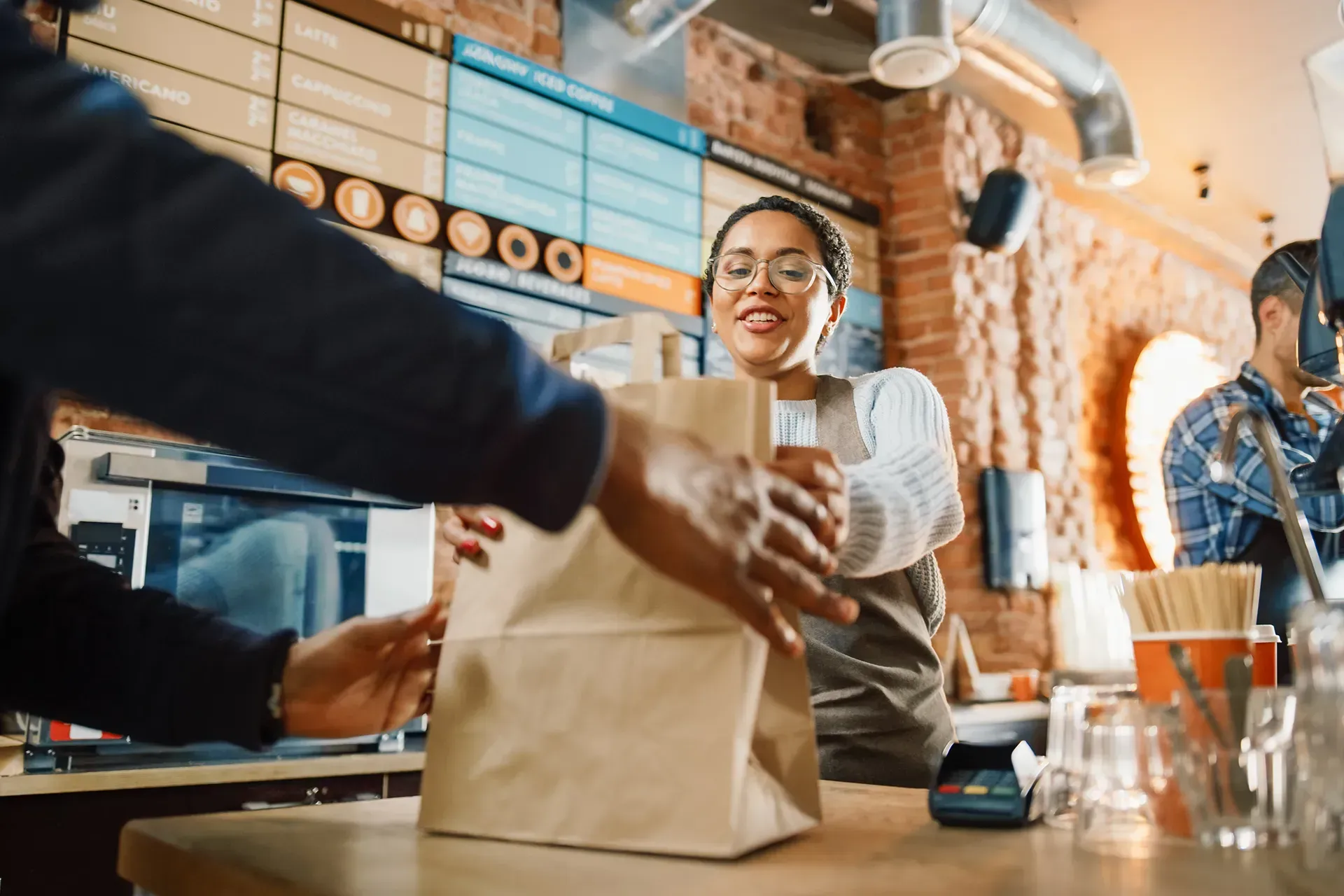
From April 2025, businesses across the UK, including restaurants and cafés, will face an increase in Employer National Insurance Contributions (NICs) from 13.8% to 15%. Additionally, the threshold for employer contributions will drop from £9,100 to £5,000, significantly raising payroll costs for many businesses in the hospitality sector. For an industry already contending with rising energy costs, increased wages, and supply chain challenges, this change presents yet another financial hurdle. However, with careful planning, food businesses like yours can mitigate the impact and continue to thrive. Optimising Workforce Planning Labour is one of the most significant costs in the food service industry. By optimising workforce planning, businesses can reduce unnecessary expenditure while maintaining efficiency. Assessing staff schedules and using data-driven scheduling software can help align staffing levels with demand, ensuring that businesses are neither overstaffed nor understaffed at peak times. Cross-training employees can also provide greater flexibility, allowing team members to handle multiple roles, thereby reducing the need for additional hires. In some cases, flexible contracts, such as part-time or seasonal arrangements, can better match staffing needs to business fluctuations. Streamlining Operations for Cost Efficiency Streamlining operations is another important step in offsetting higher payroll expenses. Automation can help by implementing self-service ordering systems, digital payment solutions, and kitchen management software, which can enhance efficiency and reduce reliance on labour. Reducing wastage through portion control strategies, closely monitoring inventory, and repurposing ingredients can also help lower costs. Investing in team training can improve service speed and quality, leading to higher table turnover and increased revenue. Strategic Pricing Adjustments While raising menu prices should be a last resort, minor adjustments can help balance rising costs without alienating customers. Introducing small price increases gradually can prevent customer dissatisfaction while helping the business absorb the cost increases. Optimising menu offerings by focusing on high-margin dishes and limiting low-profit items that require excessive labour or costly ingredients can also improve financial health. Bundling meal deals and upselling add-ons can increase the average customer spend without significantly raising individual item prices. Leveraging Tax Reliefs and Government Incentives Taking advantage of tax reliefs and government incentives is another strategy that can help ease the financial burden. Small businesses may be able to claim up to £5,000 under the Employment Allowance to reduce their employer NIC bill. Businesses that hire apprentices can access government funding through the Apprenticeship Levy, which can help with training costs. Investing in energy-efficient equipment may also allow businesses to claim tax relief under the Annual Investment Allowance (AIA), reducing overall expenses. Expanding Revenue Streams Increasing revenue streams is another way to absorb additional payroll expenses without cutting staff or reducing service quality. Implementing customer loyalty programmes can encourage repeat business. Expanding into delivery and takeaway services, either by partnering with delivery platforms or offering direct ordering incentives, can generate additional income. Hosting themed nights, happy hours, or seasonal promotions can attract more customers and boost sales. Outsourcing Non-Core Functions Outsourcing certain functions can also reduce payroll costs while maintaining service levels. Instead of hiring full-time cleaning staff, you could consider third-party cleaning services. Accounting and payroll functions can be outsourced to reduce administrative burdens and improve financial management. Marketing and social media management can also be handled by freelance professionals or agencies rather than hiring a dedicated employee. Conclusion It's no doubt that the upcoming increase in Employer NICs presents a real challenge for food businesses, but proactive financial management and operational efficiency improvements can help mitigate the impact. What can also help is speaking to us. We specialise in working with restaurants, cafés, and takeaways, so we understand the unique financial hurdles of the food service industry. No jargon, no fluff – just practical, industry-specific advice to help your business thrive. If you're interested in finding out more about how we can help your restaurant become more profitable, book a call with one of our accounting experts or call us on 0113 240 4100.

Ah, January. The time of year when inboxes are flooded with advice on setting goals, sticking to resolutions, and “making this your best year yet.” But let’s be honest – as a restaurant owner, your January feels more like crunch time than a fresh start. New years are likely a whirlwind of finalising year-end accounts, preparing tax returns, and grappling with how to cover holiday bonuses and Christmas expenses – all while keeping your business running smoothly. At MSF, we know that running a food business is about much more than numbers – it’s about passion, reputation, and serving your community while supporting your family’s future. So, while the world is talking about “New Year, New You,” let’s focus on what really matters as you step into 2025. 1. Are Your Finances Ready for the New Year? January is the perfect time to take stock of your finances – not just your inventory. Many food businesses have unique systems for tracking revenue and costs, but when it’s time for HMRC, those methods might not cut it. If you’re still using handwritten logs or spreadsheets that only you understand, consider upgrading to cloud-based accounting software. These systems streamline cash flow tracking and allow us to collaborate with you in real time, helping to prevent financial surprises before they occur. 2. Tackling Taxes: Don’t Leave It to the Last Minute Tax season doesn’t have to be as daunting as a kitchen rush during Friday night dinner service. If you’ve been putting off your self-assessment, now’s the time to act. Missing deadlines not only risks fines but adds unnecessary stress. As specialists in the food service industry, we understand how personal and business finances often overlap. Whether it’s managing dividends, director loans, or separating business expenses from personal ones, we’ll help you untangle the complexities and stay compliant. 3. Growth Plans: Cook Up a Recipe for Success For many restaurant, café, and takeaway owners, growth is about more than profits – it’s about sustainability, consistency, and balancing work with life. Emerging trends like sustainability, local sourcing, or even delivery-first models present opportunities for growth. If you’re considering expanding, diversifying, or even preparing for succession, we can help with forecasting and budgeting to ensure every move is a calculated one. 4. Your Team: Support Them, Support Yourself Your team – whether it’s your kitchen crew or your family members – plays a crucial role in your business’s success. January is an excellent time to review their roles, responsibilities, and rewards. Are they being compensated fairly? Are there opportunities to offer training or incentives? And don’t forget about yourself. As a business owner, you’re likely wearing multiple hats, which can lead to burnout. We can help identify tasks that could be delegated or automated, giving you the breathing room to focus on what you do best. 5. Build a Strong Financial Foundation for 2025 We’re not here to push New Year’s resolutions – we know your plate is already full. But if you make time for one thing this month, let it be a conversation with us. Whether you need to streamline your accounts, plan for growth, or simply get tailored advice, we’re here to guide you through the challenges and opportunities of 2025. We specialise in working with restaurants, cafés, and takeaways, so we understand the unique financial hurdles of the food service industry. No jargon, no fluff – just practical, industry-specific advice to help your business thrive. If you're interested in finding out more about how we can help your restaurant become more profitable, book a call with one of our accounting experts or call us on 0113 240 4100.

As the year winds down – or races by quicker than the last – it’s natural to reflect on what went well, what didn’t, and what you’d rather never think about again. For restaurant, café, and takeaway owners, there were many challenges this year – supply chain issues seemingly being one of the biggest. However, from speaking with our clients, there were many triumphs too! So whether you exceeded your goals this year, or struggled at times just to keep the lights on, now is the perfect time to think about your plans for the year ahead. Here are a few ideas to think about, and what success could look like for your business in 2025. Audit More Than Just Your Accounts When’s the last time you truly assessed your menu? Not just in terms of taste but profitability. Are your bestsellers also your most profitable dishes? Could tweaking portion sizes, swapping suppliers, or rethinking how you market certain items bump up your margins? Numbers might not seem like the most exciting part of running a business, but they tell an important story. What’s your cost per plate for each dish? How many plates do you need to sell to cover overheads? If these calculations aren’t second nature yet, they probably should be. And if they’re keeping you up at night, don't worry, we can help. Lean into the Seasons Seasonal specials aren’t just a nice touch; they can also help you negotiate better deals with local suppliers, lower food costs, and entice diners to keep coming back for something new. Why not review your suppliers now? See if there are partnerships that could work better for both your business and theirs. This approach often leads to better quality at lower prices – and your customers will notice the difference. Keep It Fresh Online Your social media might not directly pay the bills, but it could be the first impression many people have of your business. A good sprinkle of behind-the-scenes content, shout-outs to your team, or short videos of new menu launches can go a long way. And don’t forget reviews. If you’re not actively encouraging happy customers to leave them, you’re missing out. A glowing Google review has more power than any other marketing strategy. Just think about how many times you've chosen to dine at a restaurant because of the plethora of positive reviews! Plan for Peaks and Dips Every food business owner knows January isn’t July, but have you really planned for it? Think beyond the generic “New Year, New Menu” strategies we often see. Could you use quieter months to host pop-up events to keep revenue flowing? Take a peek at last year’s numbers and think about how you can build campaigns around your natural busy seasons – or make the most of the quieter times. Make 2025 the Year of Smart Spending It’s easy to fall into a rhythm of renewing the same subscriptions or sticking with the same suppliers year after year. But what if there’s a better deal out there? Or a bit of technology that could save you hours of admin time each week? Streamlining your operations doesn’t have to mean doing more – it can mean doing less, but better. Don’t Neglect the Human Element The backbone of your business isn’t just the food; it’s the people who prepare it, serve it, and talk about it. Are you investing enough in your team’s growth and wellbeing? Sometimes the difference between a good year and a great one comes down to better communication, training, or just making sure your staff feel valued. Happy staff = happy customers = healthy bottom line. It’s a formula that never fails. 2025: The Year You Serve Success Running any food service business is hard, but with some thoughtful tweaks, 2025 could be your best year yet. Whether it’s really looking into the details behind your numbers, upgrading your menu strategy, or finally hiring an expert to help you manage your finances. And if you ever feel like you’re in over your head with the financial side, you know where to find us. We are here to take the pressure off. Ready to get started? Drop us a message or give our team a call on 0113 240 4100 – we'd love to hear from you.

The Chancellor's Budget 2024 brings significant changes that could directly impact restaurants, cafes, and takeaway businesses. Here’s a breakdown on the key points that matter most for hospitality and food service businesses. Tax Adjustments Impacting Payroll and Profit Margins National Insurance Changes for Employers : From April, businesses will need to contribute National Insurance on earnings over £5,000 (previously £9,100), with rates rising from 13.8% to 15%. For restaurants and cafes employing a large number of staff, particularly those on lower wages, these increased costs could impact profit margins, so advance planning will be essential. Increased Employment Allowance : The Employment Allowance, which allows businesses to offset some of their National Insurance liabilities, will rise from £5,000 to £10,500. This provides welcome relief for smaller hospitality businesses, helping to reduce overall payroll costs. If you’re unsure of eligibility, we can help determine how this allowance may benefit you. Wage Increases Affecting Staffing Costs Minimum Wage Increases : From April, the National Living Wage will rise from £11.44 to £12.21 for employees aged 21 and over. This, along with similar increases for younger employees and apprentices, will raise staffing costs across the board. Restaurants, cafes, and takeaways relying on part-time or seasonal staff may want to review wage budgets and consider any necessary menu pricing adjustments to balance these costs. Apprentice Wage Increase : The minimum wage for apprentices (under 19 or in the first year of an apprenticeship) will increase from £6.40 to £7.55 per hour. This may impact businesses running apprenticeship programmes or employing younger staff, so factoring these adjustments into your payroll budget will help to avoid unexpected expenses. VAT, Alcohol and Tobacco Tax Changes Alcohol Tax Increase on Non-Draught Drinks : For businesses selling non-draught alcohol, taxes will increase in line with the higher Retail Price Index (RPI) measure of inflation. However, taxes on draught drinks will see a 1.7% cut, providing some relief to pubs and licensed cafes. This could affect pricing strategies for any hospitality business with an alcohol licence, and reviewing your stock and pricing could help maximise margins. Tobacco Tax Increase : If your business sells tobacco, either directly or through vending machines, note that tobacco taxes will rise by 2% above inflation, with hand-rolling tobacco taxed 10% above inflation. Be prepared to adjust prices to maintain profitability. Transport and Fuel Costs Fuel Duty Extension : The 5p cut in fuel duty on petrol and diesel has been extended for another year, helping keep delivery and transport costs stable. For restaurants and takeaways that manage deliveries, either in-house or through third-party providers, this offers a small but beneficial saving on logistics costs. Bus Fare Cap Increase : From January 2025, the cap on single bus fares in England will rise to £3. While this change primarily affects customer costs, it may indirectly impact businesses in high foot-traffic areas or those with employees who rely on public transport. Property and Investment Considerations Stamp Duty Surcharge for Second Properties : For those looking to expand by acquiring a second location, the stamp duty surcharge on additional properties will rise from 3% to 5% in England and Northern Ireland. This may affect future expansion plans, so careful financial planning is recommended. Inheritance Tax and CGT Implications : From 2027, pensions will be included in taxable estates, which may affect succession planning for family-run hospitality businesses. Additionally, capital gains tax (CGT) rates are increasing from 10% to 18% for basic-rate taxpayers and from 20% to 24% for higher-rate taxpayers. If you’re considering selling shares or investments, this change may be relevant. Need help? Get in touch With these Budget adjustments set to impact everything from staffing and payroll to inventory and expansion, understanding the implications for your hospitality business is key. MSF Accountancy is here to help you make sense of these changes, develop strategies to manage increased costs, and identify opportunities for savings. If you’d like to discuss how the Autumn Budget affects your business, please don’t hesitate to reach out on 0113 240 4100.

Cash flow management is vital for any business, but in the restaurant industry, where the margin between success and failure is razor-thin, it becomes even more critical. Without a healthy cash flow, your business can quickly run into trouble. At MSF Associates, we’ve spent nearly 20 years helping food and hospitality businesses manage their finances, and we've seen firsthand the biggest causes of cash flow problems. Here are seven best practices to help you avoid these common pitfalls and maintain a healthy cash flow. 1. Understand Your Cash Flow Cycle For any restaurant, café, or takeaway, it’s crucial to understand how cash flows into and out of your business. This includes knowing when your busiest times are, how often your suppliers need payment, and when to expect revenue from customers. Analysing your cash flow cycle, including seasonal trends and payment patterns, can help you anticipate cash shortfalls. A professional bookkeeper can assist you in mapping out this cycle, providing valuable insights to keep you ahead of any financial issues. 2. Maintain Accurate and Timely Financial Records Accurate and timely financial records are the foundation of good cash flow management. Keeping track of daily sales, expenses, and supplier payments allows you to forecast your cash flow needs and make better decisions. Regular reconciliation of your accounts will provide you with a clear picture of your financial health, enabling you to make well-informed decisions about inventory, staffing, and other operational needs. 3. Implement Strict Credit Control Procedures If you offer credit to corporate clients or caterers, it’s important to implement strict credit control procedures. Late payments can seriously impact your cash flow. Make sure to conduct credit checks on new clients, define clear payment terms, and send invoices promptly. Follow up on overdue accounts and consider implementing penalties for late payments to encourage compliance. 4. Optimise Your Payables Management Just as it’s important to get paid on time, managing when and how you pay your suppliers can also have a big impact on cash flow. Negotiate longer payment terms where possible, and take advantage of early payment discounts if they offer significant savings. However, ensure you don’t deplete your cash reserves too quickly by paying too early. Balancing this can help you stabilise your cash flow. 5. Prepare for Emergencies with a Cash Reserve Unexpected expenses can arise without warning in the food and hospitality industry, whether it’s equipment repairs or unexpected staff shortages. Having a cash reserve can help your business navigate these crises without putting your operations at risk. We recommend setting aside a portion of your cash flow into an emergency fund. The amount will depend on the financial health of your business, but having this buffer can be the difference between riding out a storm and facing a cash flow catastrophe. 6. Utilise Cash Flow Forecasting Technology Many tools and apps are available to help businesses like yours predict future cash flows. These can be especially useful in the hospitality industry, where business can fluctuate with seasons, holidays, and local events. By using cash flow forecasting software, you can predict future sales and expenses more accurately, helping you plan for any potential shortfalls or periods of surplus. 7. Regularly Review and Adjust Your Strategies The hospitality industry is always changing, so the cash flow strategies that worked well last year might not be as effective this year. Regularly reviewing and adjusting your cash flow management strategy is essential. Whether it’s tightening credit control during quieter months or adjusting staffing levels to match seasonal demand, working with a professional accountant or bookkeeper to refine your approach will help keep your business on solid financial footing. Conclusion Managing cash flow effectively is critical for restaurants, cafés, and takeaways, and it’s much more than just checking your bank balance. With nearly two decades of experience, we are here to help you protect your business from cash flow problems. Contact us today on 0113 240 4100 to learn how we can support your business and keep your cash flow healthy.
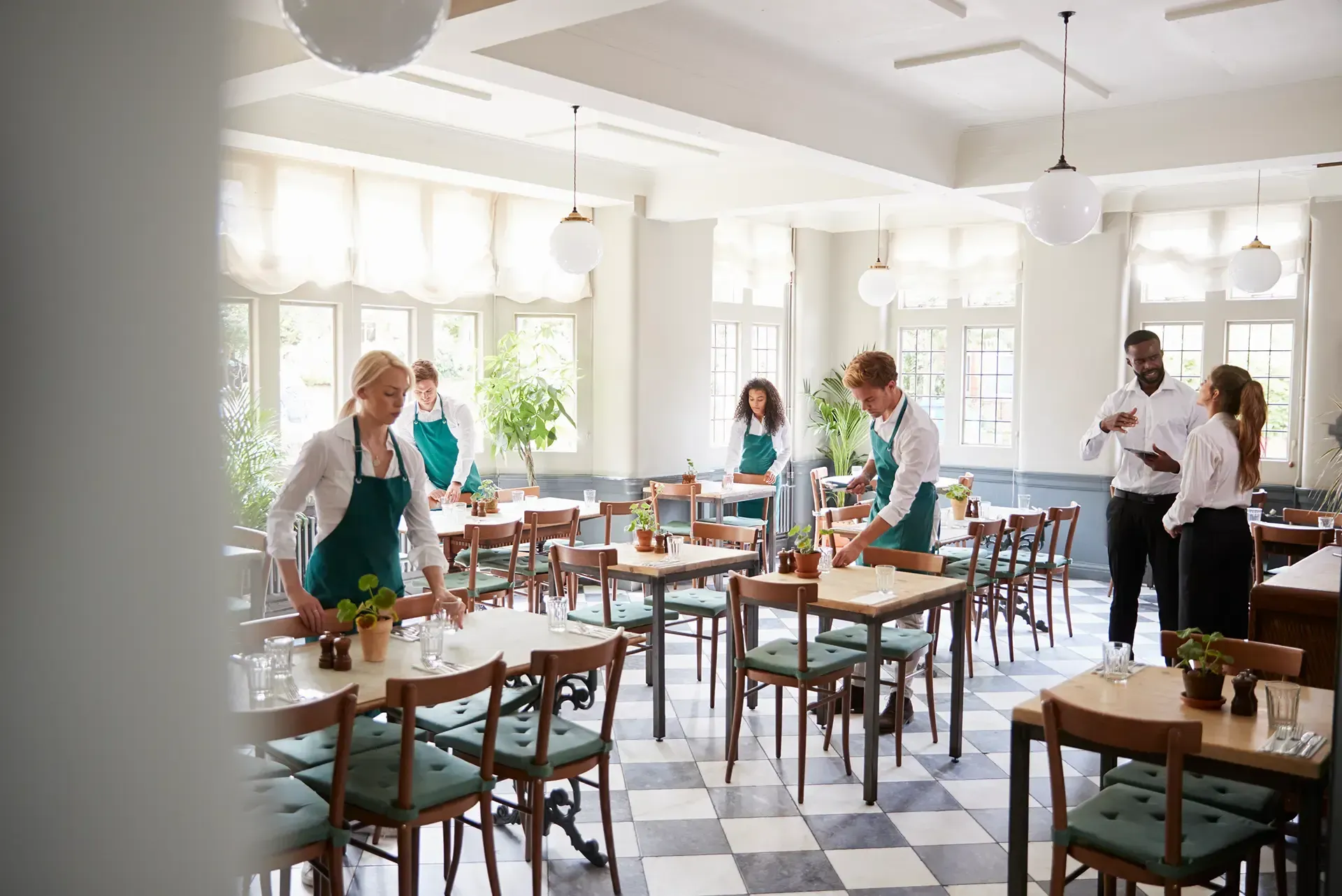
Running a restaurant, café, or takeaway is no small challenge, and payroll management often tops the list of most tricky tasks. And while no one starts a restaurant with the desire to manage a staff payroll, getting it right is essential. Missteps here can cost you precious time, and even some costly headaches from the taxman later on. So, let’s take a quick look at some of the common payroll blunders in the hospitality industry – and how you can avoid them! 1. Mixing Up Pay Rates for Different Roles We understand – your head chef, wait staff, and part-time cleaner all have different pay rates. But when staff work varying shifts and occasionally cover different roles, payroll mistakes can easily happen. Accidentally paying your kitchen staff as waiters or miscalculating overtime for your cleaning team can lead to unhappy employees and an admin headache. Our advice: invest in a reliable payroll system or software that tracks hours and pay rates for different roles automatically. It might seem like a big leap, but it’ll save you a lot of manual correcting down the line. 2. Forgetting About Holiday Pay In the rush of day-to-day operations, it’s easy to lose track of your employees’ holiday pay – especially with a rotating door of part-time workers. But not offering the right amount of holiday pay, or forgetting it altogether, is a surefire way to run into trouble. Keep track of each employee’s holiday accrual and ensure it’s being applied correctly. A good payroll system will help you stay on top of this. If you’re unsure how holiday pay works for zero-hour or part-time contracts, ask us – we can help! 3. Miscalculating National Insurance and Pension Contributions When it comes to National Insurance and pensions, things can get tricky – especially with a mixed workforce of full-timers, part-timers, and casual staff. If you’re not calculating these contributions correctly, you might end up under or overpaying, which can lead to penalties or confused employees. Stay updated on the latest contribution rates and make sure your payroll system adjusts automatically. If you're unsure about the latest regulations, we can help you stay in the loop. 4. Muddling Up Staff Tips Tips play an important part in many hospitality workers’ pay. But are you handling them correctly? Whether it’s cash tips, card tips, or tips shared through a service charge, the tax treatment can vary. Confusing? Absolutely. But getting this wrong could mean tax penalties down the line. So, set up a clear system for handling tips and make sure everyone knows how it works. It’s important to know when tips are considered part of wages and how to report them properly. We can help you figure out the best method for your business and keep you compliant with HMRC. 5. Missing PAYE Deadlines Missing PAYE deadlines is more common than you might think. But late payments or submissions to HMRC can result in penalties – the last thing any business needs. To avoid this, set reminders for key dates, or better yet, use payroll software that sends out alerts when PAYE submissions are due. If you’re feeling overwhelmed, outsourcing payroll management might be your best move. 6. Not Keeping Records Organised We've seen first-hand how chaotic things can get in a busy restaurant, and so paperwork can often take a back seat. But payroll records are essential for tax purposes and protecting yourself in case of any disputes. HMRC requires you to keep certain payroll documents for at least three years, so keeping everything in order is a must. Consider digitising your records to save time (and paper!). Use cloud-based payroll software that keeps everything neatly stored in one place. If you ever need to refer to old payroll records, you won’t have to dig through stacks of paperwork. Key Takeaway Getting payroll right in the hospitality industry can somtimes feel like a circus-level juggling act. But avoiding these common mistakes will save you time, money, and a lot of hassle in the long run. If payroll feels like one more thing on your overflowing plate, don’t hesitate to reach out to us. Restaurants, cafes, and takeaways can benefit greatly from working with a specialist accountant. If you hadn’t noticed already, we are specialist accountants in Leeds for food service businesses, so unlike most accountants, we have years of experience working with businesses just like you. If you're interested in finding out more about how we can help your restaurant become more profitable, book a call with one of our accounting experts or call us on 0113 240 4100.

At MSF Associates, we’ve spent nearly two decades partnering with food service businesses. Over that time, we've seen how technology has revolutionised their operations. The truth is, with the right tech tools, restaurant and takeaway owners can simplify complex tasks like inventory management and customer payments, saving both time and money. So, what tools should you consider? Let’s briefly consider seven areas where tech tools can streamline your restaurant’s financial processes. 1. Digital Point-of-Sale (POS) Systems Gone are the days of clunky cash registers and manual receipt tracking. Modern digital POS systems, like Square or Toast, offer a suite of features including sales tracking, inventory management, and customer data analysis. These systems not only speed up the transaction process but also provide valuable insights into which dishes are selling well and peak business hours, helping owners make informed decisions. 2. Online Reservation and Ordering Platforms Online platforms such as OpenTable for reservations and UberEats or Deliveroo for food delivery have become indispensable. They not only expand your customer base but also streamline order management and reduce the burden on staff during busy periods. Plus, these platforms often come with analytics tools, giving you a clearer picture of your online sales performance and customer preferences. 3. Inventory Management Software Efficient inventory management is crucial for controlling costs and reducing waste. Tools like MarketMan or SimpleOrder automate the inventory tracking process, alerting you when stock is low or when it's time to reorder. This can help prevent both overstocking and stockouts, ensuring that you're using your resources as efficiently as possible. 4. Employee Scheduling Software Scheduling staff can be a complex puzzle, especially in an industry known for its variable hours and high turnover rates. Software solutions like When I Work or 7shifts make it easy to create and share schedules with your team, track hours worked, and manage time-off requests. This not only saves managers time but also helps in reducing understaffing or overstaffing during shifts. 5. Financial Analysis and Reporting Tools Understanding your restaurant's financial health in real-time is crucial. QuickBooks or Xero can integrate with your POS system, automatically updating your financial records with every sale or purchase. These platforms offer dashboards and reports that break down your revenue, expenses, and profit margins, making it easier to spot trends and adjust your strategy accordingly. We are experts with both of these tools, so can help you with everything from the set up process, to showing you how you can get the most from them. 6. Customer Feedback Tools In a business where customer satisfaction is literally everything, tools that help you gather and analyse customer feedback can prove to be invaluable. Platforms like Yelp or TripAdvisor, while not exclusively financial tools, offer insights into what customers think about your food and overall customer service. This feedback can guide changes and improvements that directly impact your bottom line. 7. Payment Processing Solutions The ability to process payments efficiently and securely is vital. Payment processors like Stripe or PayPal offer solutions tailored for restaurants, including online payments for deliveries or pick-ups and contactless payment options for dine-in customers. These solutions speed up transactions and enhance the customer experience. Conclusion Embracing technology in the restaurant industry is no longer optional. By leveraging just some of the tools we've outlined, you can streamline your operations, enhance customer experience, and, most importantly, improve your restaurant's profitability. And though many of these tools come at a small cost, the initial investment in these technologies can often lead to significant savings and increased efficiency in the long run. Restaurants, cafes, and takeaways can benefit greatly from working with a specialist accountant. If you hadn’t noticed already, we are specialist accountants in Leeds for food service businesses, so unlike most accountants, we have years of experience working with businesses just like you. If you're interested in finding out more about how we can help your restaurant become more profitable, book a call with one of our accounting experts or call us on 0113 240 4100.

Over the past several years, customer reviews have become a cornerstone of the restaurant and cafe industry, significantly influencing consumer choices and, consequently, the financial success of businesses. Positive reviews can quickly attract new customers, boost sales, and enhance your reputation, while negative feedback can easily deter potential diners and harm profitability. Understanding the financial impact of these reviews and knowing how to respond appropriately is essential for any food service business aiming to succeed in the digital age. The Power of Customer Reviews A staggering number of consumers turn to online reviews on platforms like TripAdvisor, Yelp, and Google before deciding where to eat. Positive reviews can lead to increased foot traffic and higher sales. They serve as social proof, reassuring potential customers of the quality of your food and service. On the other hand, negative reviews can be costly. Just one negative review can drive away approximately 30 customers, according to some studies. The financial implications of this lost business can be significant, especially for small and medium-sized establishments. Responding to Positive Reviews While it might seem intuitive to focus on mitigating negative reviews, responding to positive feedback is equally important. A simple thank you for a positive review acknowledges the customer's effort and can foster loyalty and repeat business. Sharing positive reviews on your website or social media channels can also leverage good feedback as marketing material, attracting more customers. Handling Negative Reviews Respond Promptly and Politely: Quick responses show that you value customer feedback and are attentive to customer needs. Apologise for their negative experience and offer to discuss the matter privately, providing contact information to take the conversation offline. Take Responsibility: Avoid defensive responses. Acknowledge any mistakes made and explain how you plan to address the issue. This can turn a negative experience into a positive one, potentially retaining the customer and showing others that you are committed to continuous improvement. Offer a Solution: When appropriate, offer something to make up for the customer's bad experience, such as a discount on their next visit. This not only potentially wins back the customer but also demonstrates to others that you are serious about customer satisfaction. Learn and Improve: Negative reviews can provide valuable feedback. Use this information to identify areas for improvement in your service or menu. Demonstrating that you take customer feedback seriously and are committed to improvement can enhance your reputation in the long run. Encouraging Customer Reviews Encouraging more customer reviews can also help mitigate the impact of negative feedback. More reviews not only provide a broader base of feedback for continuous improvement but also improve your visibility on review platforms. Consider asking satisfied customers to leave a review or offering a small incentive for feedback, like a discount on their next visit. The Role of Social Media Social media platforms offer another avenue for managing customer perceptions and responding to reviews. Engaging with customers on social media, whether through responses to comments or sharing positive reviews, can enhance your online presence and attract more diners. Conclusion The financial impact of customer reviews on restaurants and cafes is undeniable. Positive feedback can drive revenue and growth, while negative reviews can have a significant financial toll. However, by effectively managing and responding to reviews, businesses can not only mitigate the damage of negative feedback but also enhance their reputation, encourage loyalty, and attract new customers. Restaurants, cafes, and takeaways can benefit greatly from working with a specialist accountant. If you hadn’t noticed already, we are specialist accountants in Leeds for food service businesses, so unlike most accountants, we have years of experience working with businesses just like you. If you're interested in finding out more about how we can help your restaurant become more profitable, book a call with one of our accounting experts or call us on 0113 240 4100.

In recent years, the "farm-to-fork" movement has gained significant traction among restaurants and cafes, driven by consumer demand for fresh, sustainable, and locally-sourced ingredients. While the ethical and environmental benefits of this approach are well-documented, the economic implications are equally compelling. Sourcing locally is not just a trendy culinary statement; it's a strategic business decision that can influence a restaurant's profitability, community engagement, and long-term sustainability. Let's explore the economics of sourcing locally and how it impacts food businesses. Reduced Transportation Costs One of the most straightforward economic benefits of local sourcing is the reduction in transportation costs. Ingredients that travel shorter distances from farm to kitchen incur lower transportation fees, which can significantly cut down overall operational costs. This saving can be particularly noticeable for seasonal produce, which, when sourced locally, doesn't require expensive long-haul shipping. Fresher Ingredients, Better Quality Local sourcing often means access to fresher ingredients, as the time from harvest to plate is drastically reduced. This freshness not only enhances the quality and taste of the dishes but can also extend the shelf life of produce, reducing waste and associated costs. Furthermore, high-quality ingredients can elevate a restaurant's reputation, allowing it to command higher prices and attract a discerning clientele willing to pay a premium for superior dining experiences. Building Community and Customer Loyalty Restaurants that source locally are investing in their communities, supporting local farmers, and contributing to the local economy. This practice fosters a sense of community and can enhance customer loyalty. Diners are increasingly seeking out establishments that reflect their values, including sustainability and support for local businesses. By marketing the restaurant as an advocate for local sourcing, owners can tap into a customer base passionate about these issues, driving repeat business and word-of-mouth referrals. Flexibility and Innovation Working closely with local suppliers offers restaurants flexibility in menu design, allowing chefs to select the best and freshest ingredients available seasonally. This can lead to a more dynamic menu, offering unique dishes that differentiate the establishment from competitors. Moreover, chefs can collaborate with local producers to develop custom ingredients, fostering innovation in the kitchen. This adaptability can be a significant draw for customers who appreciate seasonal variety and creativity in their dining experiences. Mitigating Price Volatility Global supply chains are susceptible to disruptions from weather events, geopolitical tensions, and other unforeseen circumstances, leading to price volatility for imported ingredients. Sourcing locally can mitigate these risks, as local supply chains are often shorter and more transparent, making prices more stable and predictable. This stability allows restaurants to budget and plan more effectively, avoiding sudden spikes in costs that can erode margins. Challenges and Considerations Despite these benefits, local sourcing does present challenges. The availability of ingredients can be limited by seasonality and geography, potentially restricting menu options. Additionally, the cost of locally-sourced ingredients can be higher than those purchased through large-scale distributors, at least initially. Restaurants must carefully balance these factors, considering their clientele, location, and overall business model. Effective communication with customers about the value of locally-sourced ingredients can help mitigate these concerns. Educating diners on the benefits of local sourcing – from supporting the local economy to environmental sustainability – can justify any premium prices and reinforce the restaurant's brand values. Conclusion The decision whether to source ingredients locally is multifaceted, impacting your restaurant's finances, reputation, and community engagement. While challenges exist, the economic benefits – reduced transportation costs, enhanced ingredient quality, community support, and price stability – make a compelling case for adopting a farm-to-fork philosophy. As the food industry continues to evolve, local sourcing stands out as a strategic approach that aligns economic incentives with sustainable and ethical practices, offering a competitive edge to those willing to embrace it. Restaurants, cafes, and takeaways can benefit greatly from working with a specialist accountant. If you hadn’t noticed already, we are specialist accountants in Leeds for food service businesses, so unlike most accountants, we have years of experience working with businesses just like you. If you're interested in finding out more about how we can help your restaurant become more profitable, book a call with one of our accounting experts or call us on 0113 240 4100.

We don't need to tell you this, but throwing away food is a big problem in terms of profitability and sustainability. It's pretty ironic when you think about it: you work hard to make tasty meals that customers love, but a lot of food still ends up in the bin. This doesn't just waste ingredients, it also means you're wasting money. Thankfully, more and more business owners are getting smart about cutting down on food waste to improve their profits. This article will go over some straightforward ways food businesses can fight back against waste, which is good for both their wallets and the planet. Understanding the Scale of Waste Before diving into solutions, it’s crucial to grasp the extent of food waste within the industry. According to WRAP (Waste and Resources Action Programme), the UK restaurant sector alone generates approximately 199,100 tonnes of food waste annually. A significant portion of this waste is entirely avoidable, stemming from factors like over-purchasing, inefficient storage, and excessive portion sizes. The Financial Impact The economic implications of food waste are staggering. Not only does it represent a direct loss of income from unsold dishes, but it also encompasses the costs associated with waste disposal and the lost opportunity to utilise ingredients more effectively. By reducing waste, businesses can significantly decrease their operational costs, improving their profit margins in a competitive market. Strategies for Minimising Food Waste 1. Implementing Inventory Management Effective inventory management is the cornerstone of waste reduction. By closely monitoring stock levels, expiration dates, and usage patterns, businesses can order more accurately, reducing the likelihood of surplus ingredients. Utilising first-in, first-out (FIFO) practices ensures that older stock is used before it spoils, minimising waste and maintaining food quality. 2. Embracing Portion Control Standardising portion sizes not only ensures consistency in customer experience but also plays a vital role in waste reduction. By analysing customer feedback and leftover patterns, restaurants can adjust their portions to better match consumer appetite, reducing waste and cost per dish. 3. Creative Reuse of Ingredients Innovation in the kitchen can transform would-be waste into culinary delights. Chefs are increasingly finding ways to repurpose leftovers and trimmings, whether it's turning bread ends into breadcrumbs or using vegetable peels for stock. This approach not only reduces waste but can also inspire new menu items and flavours. 4. Educating Staff and Customers Awareness and education are key to changing behaviours around food waste. Training staff on best practices for storage, preparation, and portioning can have an immediate impact. Similarly, engaging customers through marketing and on-site information about the establishment's efforts to reduce waste can foster community support and appreciation. 5. Monitoring and Adjusting Finally, continuous monitoring of waste levels and the effectiveness of implemented strategies is essential. By regularly assessing waste reduction efforts, businesses can identify areas for improvement and adjust their practices accordingly. This ongoing commitment to refinement is crucial for long-term success. The Broader Benefits The benefits of reducing food waste extend far beyond financial savings. Environmentally, it contributes to the reduction of greenhouse gas emissions and conserves resources used in food production. Socially, it aligns businesses with growing consumer demand for sustainability, enhancing brand reputation and customer loyalty. Conclusion Reducing food waste is not just an operational challenge; it's an opportunity to innovate, save money, and contribute to a more sustainable future. By implementing strategic changes and fostering a culture of awareness and efficiency, food service businesses can turn the tide on waste, creating a model of profitability that is both financially and environmentally sustainable. The journey towards minimising waste and maximising profits is ongoing, but with the right approaches, it's one that can yield substantial rewards for those willing to invest in change. Would you like to easily keep track of what items you have in stock and view reports on how well items are selling? If so, then we can help recommend a solution that works for your business. Please get in touch so we can discuss what would be best for you. R estaurants, cafes, and takeaways can benefit greatly from working with a specialist accountant. If you hadn’t noticed already, we are specialist accountants in Leeds for food service businesses, so unlike most accountants, we have years of experience working with businesses just like you. If you're interested in finding out more about how we can help your restaurant become more profitable, book a call with one of our accounting experts or call us on 0113 240 4100.

Running a limited company in the UK can be as challenging as it is rewarding. In times of financial distress, it's crucial to recognise the warning signs and know your options. This guide aims to provide a reassuring, friendly, and informative perspective on navigating through tough financial periods, focusing on immediate steps and insolvency options. Spotting the Warning Signs Early The first step in averting a financial crisis is identifying it early. Key warning signs include consistent cash flow issues, difficulty in paying creditors on time, or a sudden drop in sales. If you're seeing these red flags, it's time to take a closer look at your finances. Immediate Steps to Take Review Your Finances: Get a clear picture of your financial situation. This includes reviewing outstanding debts, assets, cash flow, and expenses. Cut Unnecessary Costs: Look for areas where you can reduce expenses without impacting the quality of your services or products. Communicate with Creditors: If you're struggling to meet payments, reach out to your creditors. Many will be willing to discuss repayment plans or extensions. Seek Professional Advice: Consulting with a financial advisor or an insolvency practitioner can provide clarity and direction. They can help assess your situation and advise on the best course of action. Understanding Insolvency Options If the financial situation is beyond immediate repair, insolvency might be a path to consider. It's a legal process that allows your company to deal with debt that can’t be paid. While it sounds daunting, insolvency can offer a structured way to address financial difficulties. Company Voluntary Arrangement (CVA): This is an agreement with your company's creditors to pay all or part of your debts over an agreed period. CVAs can give you some breathing room and help keep your business trading. Administration: This involves an insolvency practitioner taking over your company to repay creditors as much as possible. It can provide some protection from legal action by creditors and might result in a better outcome for your creditors than company liquidation. Liquidation: If your company can’t pay its debts, it might have to stop trading and be liquidated. This means selling all assets to repay creditors. It’s generally seen as the last resort. Conclusion: Taking Proactive Steps Facing financial difficulty isn’t the end of the road for your business. By recognising the warning signs early, taking immediate steps to address financial issues, and understanding your insolvency options, you can navigate through these challenges. Remember, seeking professional advice is not a sign of weakness, but a step towards finding the best solution for your business. FAQs: When should I seek professional advice for my company’s financial difficulties? As soon as you notice warning signs of financial trouble, it's wise to seek professional advice. Early intervention can make a significant difference. Can my company recover from insolvency? Yes, with the right strategy and guidance, companies can recover and even thrive post-insolvency. Is liquidation the only option if my company is insolvent? No, there are other options like CVAs and administration that might be more suitable, depending on your circumstances. External Resources: Insolvency Service: Gov.uk Insolvency Service Financial Advice for Businesses: Business Debtline
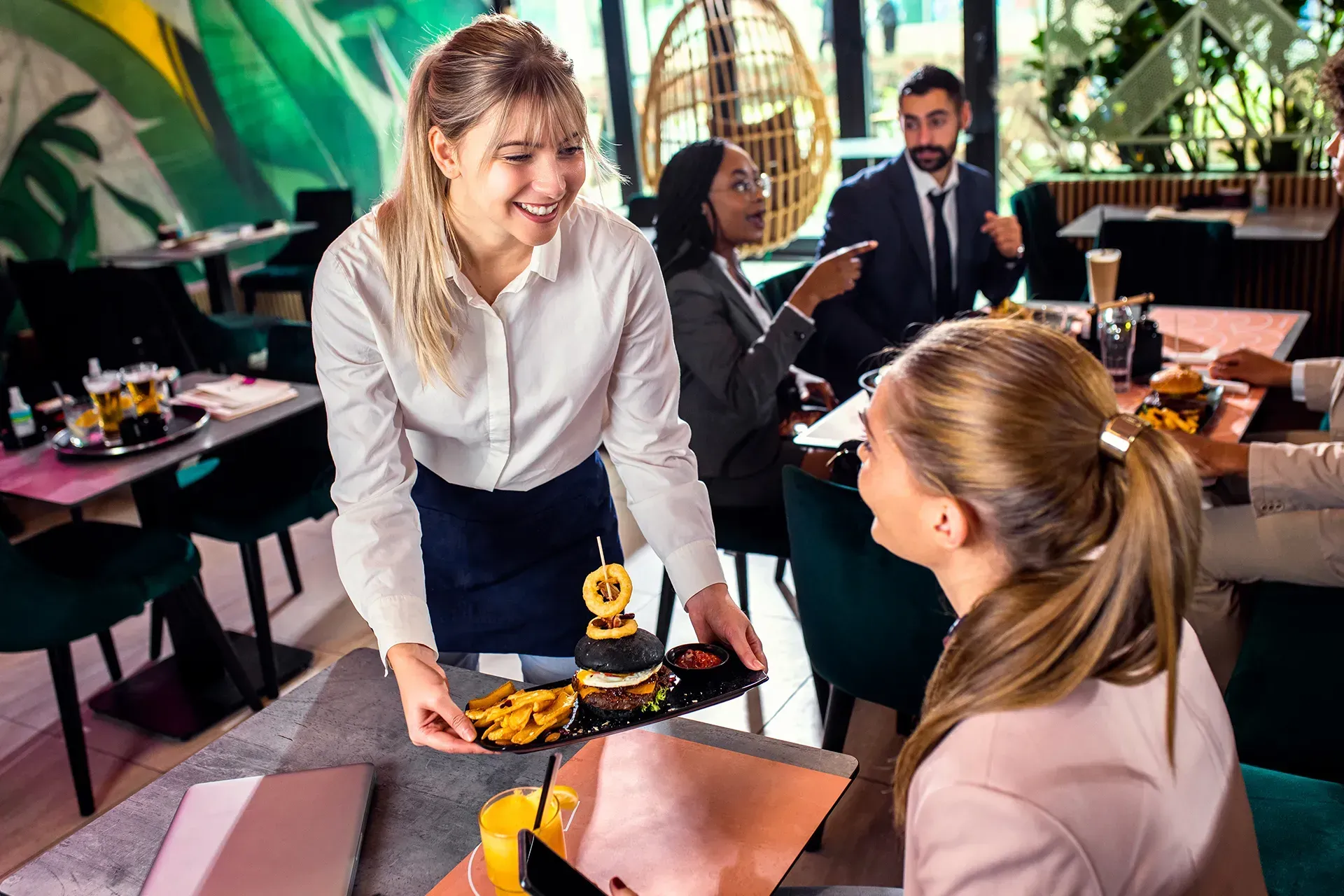
Dreaming of opening your own restaurant or elevating your existing one in the UK? A robust business plan is your golden ticket. Whether you're just starting out or have some experience, the right plan can turn your culinary dreams into a thriving reality. Let’s walk through the key components of a business plan that will put your restaurant on the map. Understanding Your Break-Even Point Before you start dreaming about Michelin stars, it’s crucial to get your numbers right. The break-even point is where your income equals your expenses – a vital figure to understand for any restaurant. It’s not just about covering costs; it’s about setting realistic financial goals. To calculate this, you’ll need to consider fixed costs like rent, utilities, and salaries, as well as variable costs like ingredients and supplies. Getting a grip on these figures will set a solid foundation for your financial planning. Cooking Up a Storm with Modern Marketing Strategies Gone are the days when a good review in the local paper was enough to fill tables. In today’s digital world, your marketing strategies need to be as dynamic as your menu. Platforms like TikTok and Instagram are your allies, offering a visual feast to potential customers. Showcase your dishes, share behind-the-scenes glimpses, and create a buzz with mouth-watering content. Don’t forget the power of Google reviews – encourage your customers to leave feedback online. Positive reviews can boost your visibility and credibility, drawing more diners to your establishment. Funding: Fuel for Your Culinary Dreams Starting a restaurant isn’t cheap, and securing funding can be a daunting prospect. There are several avenues to explore: bank loans, investors, or even government grants for small businesses. Prepare a compelling pitch that highlights your unique selling points, your understanding of the market, and your financial projections. Remember, investors are looking for a return, so show them why your restaurant is a tantalising opportunity. The Recipe for Success: Combining Passion with Practicality Your business plan should reflect your passion for food and hospitality, but it should also demonstrate practical, savvy business acumen. Include detailed sections on your target market, competition analysis, marketing plan, financial projections, and operational strategies. A well-thought-out business plan not only guides your day-to-day operations but also reassures potential investors that you have a clear roadmap to success. Conclusion: From Paper to Plate A well-crafted business plan is the first step in turning your restaurant dream into a reality. It’s a living document that should evolve as your business grows. By understanding your financials, embracing modern marketing, securing the right funding, and combining your passion with practicality, you’re setting the table for a successful culinary venture. FAQs: How often should I review and update my restaurant's business plan? Regularly review and update your business plan, at least annually, to reflect changes in the market, customer preferences, and your business growth. Can social media really impact my restaurant’s success? Absolutely! Social media is a powerful tool to engage with your audience, showcase your offerings, and build your brand’s presence. Is it difficult to secure funding for a new restaurant? It can be challenging, but with a solid business plan and a clear understanding of your financials, you can increase your chances of securing funding. External Resources: Business Plan Templates: Gov.uk Business Support Social Media Marketing Tips: Digital Marketing Institute Conclusion Restaurants, cafes, and takeaways can benefit greatly from working with a specialist accountant. At MSF Associates, we are specialist accountants in Leeds for food service businesses, so unlike most accountants, we have years of experience working with businesses just like you. If you're interested in finding out more about how we can help your restaurant become more profitable, book a call with one of our accounting experts or call us on 0113 240 4100.

When it comes to running a successful restaurant, there’s more to the story than just tantalising taste buds and providing top-notch service. The structure behind the scenes plays a pivotal role in the overall success and stability of the business. That's where a holding company structure with different subsidiaries comes into play, offering a smorgasbord of benefits for savvy restaurant owners. The Basics of Holding Company Structure Imagine your restaurant business as a tree. The holding company is the sturdy trunk, supporting various branches – your subsidiaries. Each branch operates independently, focusing on different aspects of the business, such as asset management, day-to-day trading, or holding funds. This separation not only brings clarity and focus to each business area but also offers significant financial and legal advantages. Safeguarding Assets: A Separate Entity for Protection One of the key benefits of this structure is the protection of assets. By keeping property, equipment, and other valuable assets in a separate subsidiary, they are shielded from the operational risks associated with the trading side of the business. This means that if the trading company faces legal challenges or financial difficulties, the assets are secure and untouchable in their own entity. Efficient Operations: Focused Trading Subsidiary The subsidiary handling the day-to-day operations of the restaurant can operate with greater efficiency and flexibility. This entity focuses solely on the trading aspects – serving customers, managing staff, and running the daily business. Without the burden of managing assets or holding significant funds, this subsidiary can be more agile and responsive to the market's needs. Financial Management: Centralised Funds in the Holding Company Having a holding company that controls the finances offers a strategic advantage. This entity can hold and distribute funds as needed, providing financial support to the subsidiaries. This centralised approach to financial management allows for more strategic decision-making, such as when to reinvest in the business, expand, or navigate through tough economic times. Risk Management and Tax Benefits This structure also offers risk management benefits. By separating the different parts of the business, you limit liability across the entities. Additionally, there can be tax advantages to this structure, depending on the specific regulations and tax laws in your region. It’s always wise to consult with a tax professional to fully understand and capitalise on these benefits. Conclusion: A Recipe for Success For restaurant owners, a holding company structure with different subsidiaries can be a game-changer. It offers protection, efficiency, and strategic financial management – ingredients for long-term success and stability. Remember, while the food you serve brings customers through the door, the structure of your business keeps the lights on and the stoves hot. FAQs: How does a holding company structure protect a restaurant’s assets? By placing assets in a separate subsidiary, they are protected from the operational risks and liabilities of the trading company. Can this structure help in tax savings? There can be potential tax advantages, but it’s crucial to consult with a tax expert to understand how it applies to your specific situation. Is a holding company structure suitable for small restaurants? Yes, even small restaurants can benefit from this structure, especially as they plan for growth and risk management. Get in touch For more information about how we can help you, please contact us by booking a call with our team , calling us on 0113 240 4100, or via our contact form . As one of the leading accountants in Leeds, we are confident that we can help you achieve even greater business and financial success!

In the dynamic and ever-growing world of fast food and restaurant businesses, reaching the £85,000 VAT threshold can happen quicker than you might think. Picture this: just a few daily orders of pizzas and burgers can swiftly accumulate to this significant figure. But as sales rise, so does the responsibility to manage VAT effectively. Let's explore how you can stay on top of this pivotal aspect of your business. Reaching the Threshold: A Sign of Success and a Call to Action Reaching the VAT threshold is not just a milestone; it's also a wake-up call for business owners. It's crucial to understand that once your turnover hits £85,000, you're required to register for VAT with HM Revenue and Customs (HMRC). This threshold isn't just a number; it's a signal that your business is growing and that you need to adapt your financial management strategies. Budgeting for VAT: A Crucial Step in Financial Planning As you approach the VAT threshold, budgeting becomes more important than ever. It's essential to factor in the VAT you'll need to charge your customers and, subsequently, pay to HMRC. This might mean adjusting your prices or reevaluating your expenses to maintain profitability. Remember, good budgeting isn’t just about keeping track of numbers; it's about ensuring the financial health and sustainability of your business. Document Storage: Your Digital Ally In today’s digital age, efficient document storage is a game-changer. Online document storage solutions allow you to keep all your invoices, receipts, and financial records in one easily accessible place. This not only simplifies your accounting processes but also ensures you're always ready for tax season or any HMRC inquiries. Embracing digital solutions means less time rummaging through paperwork and more time focusing on what you do best – serving delicious food. Choosing the Right VAT Scheme: Flat Rate vs Standard Rate When it comes to VAT, one size doesn't fit all. The UK offers different VAT schemes – the flat rate and the standard rate – each with its own advantages. The flat rate scheme simplifies the process by applying a fixed rate of VAT to your turnover, while the standard rate involves deducting the VAT you've paid on your purchases from the VAT you've collected from customers. Deciding which scheme is best for your business depends on various factors, such as your financial setup and the nature of your expenses. Seeking Professional Advice: An Investment in Your Business’s Future VAT regulations can be complex, and making the right decisions is crucial for your business’s financial health. Seeking advice from a tax professional or accountant is not an expense; it's an investment. These experts can provide tailored advice on VAT registration, budgeting, and choosing the most beneficial VAT scheme for your business. Conclusion: Embrace the Growth, Stay Compliant Hitting the £85,000 VAT threshold is a clear indicator of your business's success. However, it also brings new responsibilities. By budgeting wisely, leveraging digital document storage, choosing the right VAT scheme, and seeking professional advice, you can navigate these changes confidently. Embrace this growth phase of your business and stay compliant to ensure continued success. FAQs: What happens if I don't register for VAT after reaching the threshold? Failing to register for VAT can lead to penalties and charges from HMRC. It's considered tax evasion, so it's crucial to register as soon as you hit the threshold. How can digital document storage benefit my business? Digital document storage keeps your financial records organized and easily accessible, which is invaluable for VAT reporting and audits. Should I automatically choose the flat rate VAT scheme? Not necessarily. It's best to consult with a tax professional to determine which VAT scheme is more advantageous for your specific business circumstances. External Resources: HMRC VAT Registration Guide: HMRC VAT Guide Get in touch If you would like to find out more about working with us, please contact us by booking a call with our team , calling us on 0113 240 4100, or via our contact form . As one of the leading accountancy firms in Leeds, we are sure that we can help you achieve even greater business and financial success!

Hello there, UK food business owners! Whether you're flipping burgers in a bustling takeaway, serving up scones in a cosy food hut, or presenting exquisite plates in a fine dining restaurant, let's face it: tax season can feel like a Michelin-starred challenge. But fear not! This guide is here to turn your tax preparation from a frantic scramble into a well-organised, stress-free process. Why Early Preparation is Your Best Ingredient First things first, leaving tax prep to the last minute is like waiting until the dinner rush to start prepping your ingredients – it's a recipe for disaster. The key to a smooth tax season is starting early. This doesn't just mean a less hectic experience; it also means more time to ensure you're taking advantage of every tax deduction and relief available to your business. The Secret Sauce: Document Organisation One of the biggest headaches of tax season is getting all your documents in order. Receipts, invoices, employee records – it can be overwhelming. But, if you keep your records organised throughout the year, you're already halfway there. Digital solutions are your sous-chefs in this task. Using accounting software or even simple spreadsheet tools can make a world of difference. They not only keep your financial records neat but also make it easy to retrieve any piece of information you need at a moment's notice. Choosing the Right Software: Your Digital Sous-Chef When it comes to software, there's a smorgasbord of options out there. Look for ones that cater specifically to the food industry or small businesses. These tools understand the unique challenges you face – like fluctuating inventory and seasonal staffing. They can help track expenses, manage payroll, and even generate real-time financial reports. Some popular choices in the UK include QuickBooks, Xero, and Sage. Each has its unique features, so take some time to explore which one suits your business's palate. Don't Forget About HMRC's Digital Requirements Remember, the UK's Making Tax Digital (MTD) initiative is in full swing. This means your VAT records and returns need to be kept digitally and submitted using compatible software. If you haven't already, now's the time to ensure you're compliant. This isn't just a legal requirement – it's an opportunity to streamline your tax processes and get a better handle on your business finances. Season Your Strategy with Regular Check-Ins Consistency is key. Schedule regular financial check-ins throughout the year – think of it as your routine kitchen inspections. These check-ins allow you to catch any discrepancies early and keep your financial records accurate. They also provide a clear picture of your business's financial health, helping you make more informed decisions. Seek Expert Advice When Needed While you're the expert at crafting delicious meals, you might not be a tax expert – and that's okay! Don't hesitate to seek advice from a tax professional. They can offer personalised advice tailored to your business's needs, ensuring you're not only compliant but also taking full advantage of any tax benefits. Conclusion: Serve Up a Stress-Free Tax Season By starting early, staying organised, utilising the right software, and seeking expert advice when necessary, you can transform tax season from a dreaded chore into a manageable, even empowering part of your business. So, here's to a stress-free tax season – may it be as smooth as your best custard and as rewarding as a full dining room! FAQs: What's the best way to stay organised for tax season? Use digital tools to keep your financial records in order. Regularly update and review them to avoid any last-minute rush. How can software help with tax preparation? Tax software can automate many processes, keep records organised, and ensure you're compliant with initiatives like Making Tax Digital. Should I hire a tax professional? If you're unsure about your tax obligations or want to make the most of potential deductions, consulting a tax professional is a wise move. External Resources: HMRC's Making Tax Digital Guide: HMRC MTD Guide QuickBooks UK: QuickBooks Xero for UK Businesses: Xero
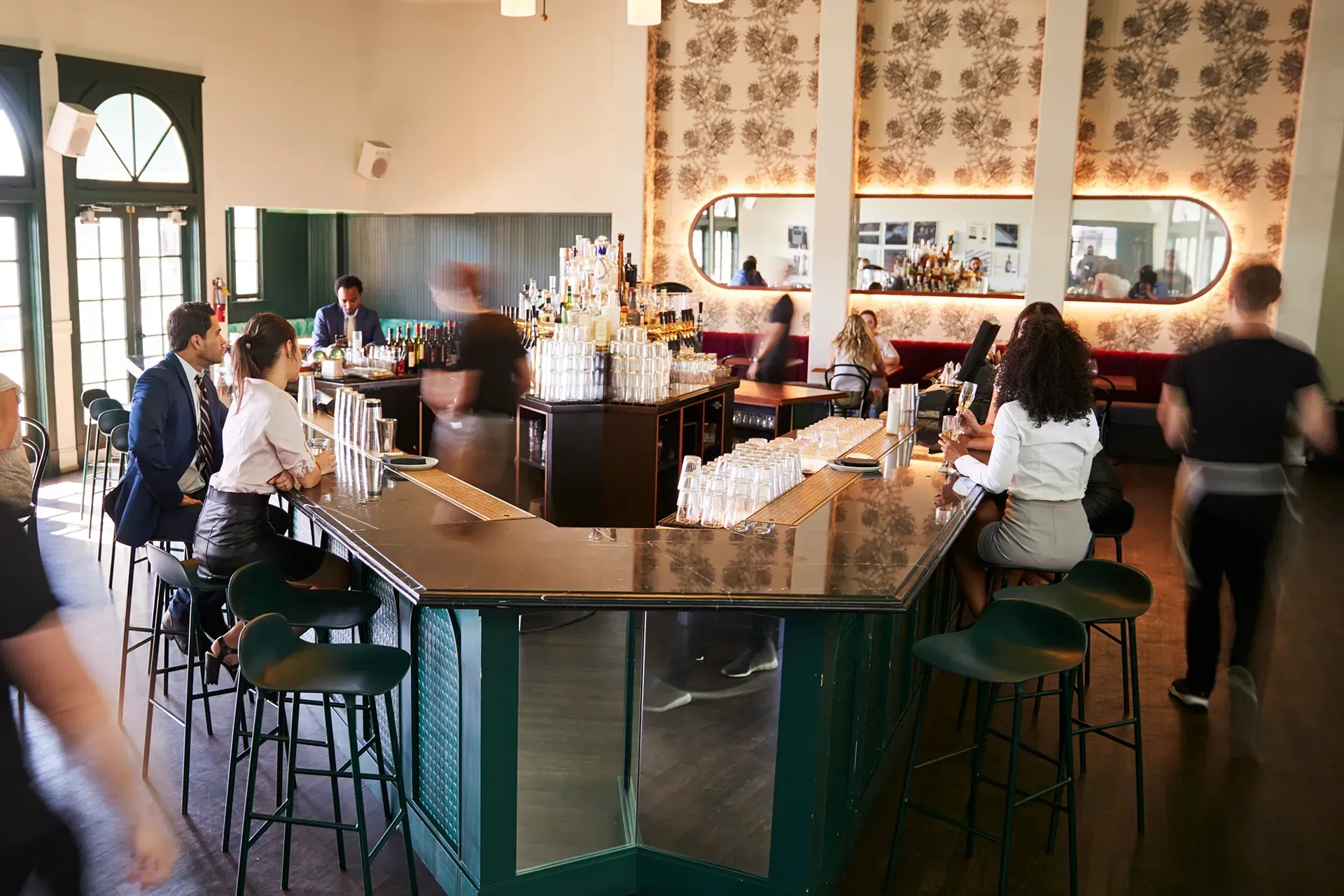
Hello, UK taxpayers! As 2024 rolls in, so do some significant changes to the corporate tax rates. Whether you're a seasoned business owner or an individual employed in the corporate world, understanding these changes is crucial. But don't worry, we're here to break it down for you in a friendly and informative way. And remember, if anything seems a bit too tricky, reaching out to a tax expert is always a smart move. The 2024 Corporate Tax Rate Changes: What's New? The UK government has announced adjustments in the corporate tax rates, and it's essential to grasp what this means for your business or personal finances. For starters, these changes are set to affect how much tax companies pay on their profits, potentially impacting their overall financial planning and strategies. Impact on Business Owners For business owners, understanding these new tax rates is vital. It's not just about how much tax you'll pay; it's also about strategic planning for growth and investment. The new rates could affect everything from your profit margins to your ability to invest in new equipment or staff. Keeping abreast of these changes and adjusting your financial strategies accordingly is key to maintaining a healthy bottom line. What Employed Individuals Need to Know If you're employed in the corporate sector, these changes might not directly impact your paycheck, but they could influence the broader economic environment of your workplace. Understanding these shifts can help you make more informed decisions about your career and personal finances. Navigating the Changes Stay Informed: The first step is to keep yourself updated. Government websites, financial news sources, and professional tax advisories are great places to start. Review Your Financial Plans: Business owners should review their financial and tax plans in light of these changes. It might be time to adjust budgets and forecasts. Consult the Experts: Tax laws can be complex, and there's no shame in seeking professional advice. A tax expert can provide insights specific to your situation, ensuring you're making the most of these new rules. Consider Long-term Implications: Think about how these changes might affect your long-term financial health. For businesses, it could mean rethinking investment strategies; for individuals, understanding the broader economic impact is key. Conclusion: Embracing the Change Change is a constant in the world of taxes, and staying ahead means adapting and planning. For business owners and employed individuals alike, these new corporate tax rates in 2024 represent both challenges and opportunities. By staying informed, seeking expert advice, and planning ahead, you can navigate these changes with confidence and ease. FAQs: How will the new corporate tax rates affect small businesses? Small businesses might see changes in their tax liabilities, affecting their financial planning and potential growth strategies. Should I talk to a tax professional about these changes? Yes, consulting a tax professional can provide tailored advice and help you understand how these changes specifically impact you or your business. Can these tax changes impact my personal investments? Potentially, yes. Understanding the broader economic implications of these changes is crucial for personal financial planning. External Resources: UK Government Tax Information: Gov.uk Professional Tax Advice: Chartered Institute of Taxation

Running a restaurant, café, or any food service enterprise is indeed a challenging task. Amidst the chaos of ensuring the best service, managing inventory, and keeping up with the ever-evolving tastes of your clientele, the last thing you want is financial confusion. Enter MSF Associates, the leading accountants in Leeds specialising in the food service sector. Why the Food Service Sector Needs Specialised Accounting A lot goes on behind the scenes in restaurants and cafes. There's inventory to manage, employees to pay, and daily sales to record, not to mention ensuring you're compliant with tax laws. Now, while any accountant can manage books, not every accountant understands the nuances of the food sector. MSF Associates isn't your ordinary accounting firm. Our in-depth industry knowledge ensures that your establishment not only runs smoothly but thrives. Why MSF Associates Should Be Your First Choice Deep Industry Knowledge: We don’t just crunch numbers; we understand the heartbeats of restaurants. This niche focus means our strategies and insights are always one step ahead. Proactive, Not Reactive: We continually monitor the financial health of your restaurant. Why wait for an issue to arise when it can be pre-emptively tackled? Dedicated Account Managers: Your business isn't generic, so why should your service be? Every client gets a personalised experience with someone who understands the ins and outs of their establishment. Incorporating the Latest Tech: The world is digital, and so are we. With the integration of the latest accounting software tailored for restaurants, you're always updated in real-time. Honesty in Pricing: We value your trust. There are no hidden charges; you always know what you're in for. Trust & Confidentiality: In an era where data breaches are frequent, we hold your trust paramount. Your financial data is our guarded secret. But Why Can't I Just Use Any Accountant? While any skilled accountant can help balance your books or file your taxes, the food service sector presents unique challenges and opportunities. From industry-specific tax saving potentials to optimising inventory to minimise wastage, generalists might miss out on these nuances. MSF Associates, with its vast experience in the sector, ensures that your establishment's financial health is optimised. Our Specialised Services Financial Reporting: Tailored financial reports focusing on key metrics for restaurants and cafes. Inventory Management: Reduce waste and optimise purchases with our designed-for-you inventory management service. Business Advisory: Whether you're thinking of opening another branch or going the franchise route, we're here to guide you every step of the way. Tax Planning: Why pay more when you can optimise? We ensure you get every tax benefit your restaurant is entitled to. Cash Flow Management: Let's help you predict the financial weather, so you're always prepared. Payroll Management: Handling varied hours, overtime, and tips – we ensure your payroll is accurate and compliant. Conclusion In the bustling world of food services, MSF Associates in Leeds is the financial partner you didn't know you needed. With our specialised knowledge, proactive approach, and range of tailored services, we're not just your accountants – we're your strategic partners in growth. Want to learn more? Book a call with us . Let's discuss how MSF Associates can be the secret ingredient to your establishment's success.
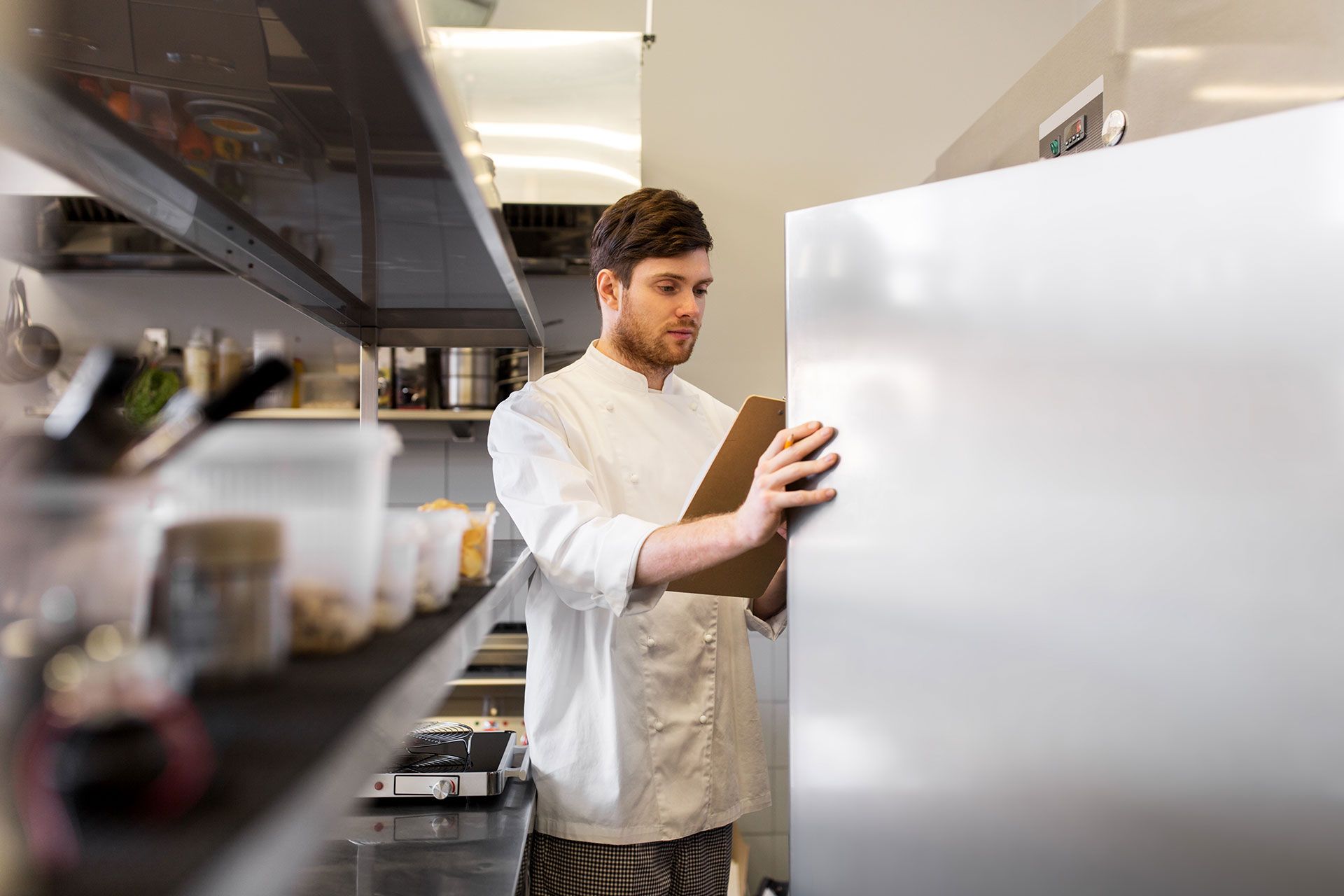
Good inventory management is essential for the success of any restaurant, café, or takeaway. It helps you keep track of the food and supplies you need to run the business, reduces waste, improves efficiency, and means you’re never spending more than you need to on stock. Here are just three reasons why you should take inventory management seriously: 1. Control costs One of the most important reasons for good inventory management is to control costs. If you’re able to keep accurate and up-to-date inventory records, you will be better able to manage your food and supply costs, reducing the risk of overordering or underordering. With good inventory management, you can monitor stock levels, identify products that are not selling well, and adjust purchasing accordingly. You may also be able to take advantage of bulk purchasing discounts and negotiate better prices from suppliers. From our experience, taking the time to build a strong relationship with your suppliers can go a long way in securing better prices. Get to know them personally, communicate regularly, and show appreciation for their business. This will help to establish trust and create a mutually beneficial partnership. Importantly, if a supplier is not willing to negotiate on price, be prepared to walk away. There may be other suppliers who are willing to offer better prices, and showing a willingness to explore other options can be a powerful negotiating tactic. 2. Minimise food waste Good inventory management can help reduce food and supply waste. With proper inventory tracking, you can avoid overordering and ensure that they only purchase what you need. In addition, it can also help you track expiration dates and rotate inventory to ensure that products are used before they go bad meaning you’ll rarely need to throw out expired or spoiled products which is also great news for the planet! 3. Improve efficiency By keeping accurate inventory records, you can reduce the time and resources you need to manage stock. This can help free up your time for more important tasks like making another batch of lemon drizzle twizzles (forgive us – we promised we wouldn’t mention that again!). Good inventory management can also help you anticipate the needs of the business and ensure that you have the necessary supplies and ingredients on hand to meet demand. If you run a chicken restaurant, we assure you that nothing will annoy your customers more than if they show up and you’ve run out of chicken. We’re looking at you KFC! To help, consider using inventory management software to streamline your inventory management processes. These software programs can help you track inventory levels, generate reports, and set up automatic reorder points. Finally, ensure your staff are proper trained on inventory management procedures, including how to track inventory levels, how to properly store ingredients, and how to avoid waste and spoilage. Encourage your entire team to report any issues or discrepancies in inventory levels, and reward and recognise them for their efforts. Want to start using inventory management software? Would you like to easily keep track of what items you have in stock and view reports on how well items are selling? If so, then we can help recommend a solution that works for your business. Please get in touch so we can discuss what would be best for you. R estaurants, cafes, and takeaways can benefit greatly from working with a specialist accountant. If you hadn’t noticed already, we are specialist accountants in Leeds for food service businesses, so unlike most accountants, we have years of experience working with businesses just like you. If you're interested in finding out more about how we can help your restaurant become more profitable, book a call with one of our accounting experts or call us on 0113 240 4100.

You don’t need us to tell you that menu pricing is one of the most crucial aspects of running a successful restaurant, café, or takeaway. But many business owners set their price and then wait many months or even years before they check to see whether this is still a fair and profitable price. You may feel like you’re too busy to dedicate time to reviewing your prices regular. Or you might be worried that your customers won’t want to pay a penny more than what they’ve become accustomed to. However, while pricing that is too high can negatively impact sales and revenue, prices that are too low can have the same effect, just in an even shorter time! Therefore, it is important to regularly review your prices to ensure that they are in line with costs and your profitability goals. Here are five reasons why you should regularly review your prices if you’re not already doing so: 1. Keep up with costs One of the primary reasons to review your menu pricing is to keep up with costs. Prices of ingredients (e.g. the infamous post-pandemic cheese inflation), labour (e.g. minimal wage), energy bills (e.g. the enormous rise in cost of gas and electricity since the outbreak of the Russia-Ukraine war) and other overhead expenses can change over time, and you must adjust your menu prices accordingly. Failing to keep up with these changes can result in reduced profit margins or, in many cases of late, negative profitability. If you’re charging the same for menu items that use extensive amounts of olive oil, milk, cheese, or eggs as you did just one year ago, you’ll likely be making very little profit at all on these items. 2. Increase profitability Another important reason to review restaurant menu prices regularly is to increase your profitability. By setting menu prices that maximise profit margins, you’ll be able to generate more revenue per sale and increase your overall profitability. Approach this with some caution, however. With inflation currently at a near 50-year high, many people have less disposable income than they did before the COVID-19 pandemic. So, as we mentioned earlier, setting menu prices that are too high can deter customers from spending their limited cash. Striking the right balance between price and profitability is key. 3. Stay competitive Staying competitive is another important reason to review your menu prices regularly. Your business must stay competitive with other similar food service businesses in the area to attract customers and retain customer loyalty. This may mean periodically visiting other businesses in the area to see what they are charging to see how you compare. Go on, enjoy a meal cooked by someone else, just this once! 4. Adjust to customer demand Customer demand can change over time, and your menu must adjust accordingly. For example, certain dishes may become more or less popular which can impact profitability. Similarly, customers may be willing to pay more for certain menu items based on trends or the popularity of the dish. If a certain menu item is incredibly popular will raising the price by one, two, or even 10% really affect sales – probably not. 5. Boost customer satisfaction Finally, regularly reviewing menu prices can help boost customer satisfaction. Your customers want to feel like they are getting a good value for their money, and fair and transparent menu pricing is an important part of that. By setting prices that reflect the current market, you can boost customer satisfaction and build loyalty. This can help attract new customers and retain existing ones, which is critical for long-term success. Think you may need a little help from a numbers expert? At MSF Associates in Leeds, we are the numbers experts. We work with numbers every day. And one of the key numbers in any business that we specialise in is the price number. Using our skills with numbers we help you analyse your business model, understand different price points, and identify a pricing strategy that will maximise your profits. We have a range of solutions that will: Identify a price strategy that will enable your business to grow more profitably. Establish price points that will yield greater profit. Present your price in a way that is more appealing. Make your price seem smaller than it is using the power of price psychology. The bottom line is you will make more sales and at higher prices, your profit will grow, and you will have more cash in the bank. Call our team on 0113 240 4100 or book a call if you think this would be useful for your business.

As a restaurant, café, or takeaway owner or manager, you should be regularly reviewing your financial reports to monitor the financial health of your business. Financial reports provide valuable insights into your business’ financial performance, allowing you to make informed decisions and take proactive steps to improve your profitability. Owners who do not have their finger on the pulse of their business will likely to make poor financial decisions since they don’t have enough information on hand to make a good one! Here are six reasons why you should regularly review your financial reports: 1. Track revenue and expenses Your financial reports will show you how much revenue your business is generating and how much you are spending on expenses. This information is critical to understanding your profit margin and making decisions about pricing, menu items, and cost controls. By reviewing your financial reports regularly, you can identify trends in revenue and expenses and take action to address any issues before they become larger than one of your nan’s Sunday roasts. 2. Analyse cash flow Cash flow is the lifeblood of any business, but especially food and hospitality businesses where margins are typically exceptionally tight. Your financial reports will show you how much cash is coming in and going out. By monitoring your cash flow regularly, you can identify any issues early and take steps to improve your cash position. For example, if your cash flow is tight, you may need to quickly adjust your spending or explore financing options to ensure you have enough cash to cover your expenses. 3. Identify profitability Profitability is a key indicator of the success of your business. Your financial reports will show you how much profit you are generating and where that profit is coming from. By analysing your profitability regularly, you can identify areas where you can improve. For example, if you notice that certain menu items are more profitable than others, you may want to focus on promoting those items or adjusting your menu to include more profitable items. Likewise, you may want to ditch items off your menu completely if they are not adding money to your bottom line. 4. Identify areas for improvement Regularly reviewing your financial reports can help you identify areas where you can improve your businesses’ financial performance. For example, if your staffing costs are high, you may need to adjust the size of your team or explore ways to improve efficiency. If your food costs are high, you may need to review your menu pricing or negotiate better prices with your suppliers. By identifying areas for improvement as quickly as possible, you can take proactive steps to address them before you end up in a whole world of trouble. 5. Create a strategic plan for success Your financial reports can also help you plan for what lays in store in the future. By analysing your financial performance and forecasting future revenue and expenses, you can develop a strategic plan to grow your business. For example, if you want to open a second location for your takeaway, you can use your financial reports to identify how much capital you will need and develop a plan to secure financing. 6. Ensure compliance Finally, regularly reviewing your financial reports ensures compliance with tax and regulatory requirements. By monitoring your financial performance, you can ensure that you are paying the correct amount of VAT to HMRC, payroll taxes, and other mandatory taxes. You can also ensure that you are complying with other regulatory requirements, such as minimum wage laws and health and safety regulations. Have your most important numbers just one click away As part of our management reporting service at MSF Associates, we can help you set up the key reports you need so that the most important information is always just a click away. As regularly as you would like, we can supply you with a periodic view of your reconciled account summary that will include a year-to-date total for each category of income and expense, and most importantly, your profit for the year to date. It will also include a periodic purchase ledger report showing you how much money you owe to your suppliers. The firms we work with consistently tell us that they find this service invaluable. Book a call with one of our experts or call us on 0113 240 4100 if you’d like to find out more about this. As specialist accountants for food service businesses: restaurants, cafes, and takeaways, we understand you and your business inside and out and know the best way to help you.

“What’s a capital allowance?” we hear you ask. Capital allowances are a form of tax relief that businesses can claim on certain types of expenditure. Restaurant and café owners in particular are often overlooking substantial tax allowances. This usually happens because their accountant may only pick up simple and obvious items such as chairs, tables, and crockery. When fitting out or refurbishing a restaurant or café, the construction expenditure is generally not very well detailed for capital allowances, therefore these can easily be missed. So, to take full advantage of capital allowances, it is important for you to be aware of the rules surrounding them before purchasing machinery, equipment, or appliances for your business. Not to bore you with too many details, but there are two main types of capital allowances: the annual investment allowance (AIA) and writing down allowances (WDA). The AIA allows businesses to claim 100% tax relief on the first £1 million of qualifying capital expenditure in a tax year. This includes most types of plant and machinery, as well as certain types of building work, such as alterations to make a building more accessible for people with disabilities. WDA, on the other hand, allows businesses to claim a percentage of the cost of qualifying assets as a tax deduction each year. The percentage varies depending on the type of asset and its expected useful life. Being aware of capital allowances is important for businesses for several reasons: 1. Cash flow benefits By claiming capital allowances, you can reduce your tax bill, meaning a healthier cash flow. This can be especially important if you’re a small business or start-up, since you’ll likely have limited cash reserves. 2. Maximising tax relief To take full advantage of capital allowances, you need to understand what types of assets qualify for capital allowances, the timing of the claim, and any restrictions or limitations that may apply. For example, some assets may only qualify for partial relief, while others may not qualify at all. There are also specific rules around the timing of capital allowance claims, such as the requirement to claim within two years of the end of the tax year in which the expenditure was incurred. If you’d like to learn more about this, or if you have recently purchased items that you think may qualify for capital allowances, please feel free to get in touch with our team. 3. Avoiding mistakes Failing to claim capital allowances correctly can result in errors on your business’ tax return, which can lead to some pretty hefty penalties and interest charges. Trust us, these are not nice. This can be particularly disastrous if the mistake is not discovered until several years later, when your business may no longer have the relevant records to support a claim. 4. Planning for the future Being aware of capital allowances can also help you to plan for the future. If your business is planning to purchase appliances, understanding the potential tax relief available can help you to make an informed decision about the timing of the purchase and the types of assets to invest in. In addition, you can use capital allowances as part of your cash flow and tax planning strategies. For example, by deferring a capital allowance claim to a future tax year, you can reduce your tax liability in a year when profits are expected to be higher. Get in touch with us to avoid any costly mistakes By understanding capital allowances, you can maximise your tax relief, avoid making costly mistakes on your tax return, and improve your oh so important cash flow. As such, we believe it’s vital for businesses to seek professional advice and guidance before making any significant capital expenditure. If you would like to talk to us about this, book a free discovery call or get in touch via our contact form . At MSF Associates in Leeds, we have years of experience serving the food and hospitality industry and delivering excellent service to our clients. This is why we understand you and your business perfectly and know just how to help you. Book a free 15 minute discovery call with our team today.
We know, tracking business expenses really doesn’t sound very fun. You didn’t start a food business so you could fill in Excel spreadsheets or start your very own receipt shoebox collection. Therefore, some business owners have thought, “What the heck, what does it matter if a few expenses are missed?” Well, it absolutely matters. Tracking your expenses is crucial to the financial health and success of your business. Failure to track your business expenses can lead to at least six things, none of them good, these include: 1. Overspending One of the biggest risks of not tracking expenses is overspending. We see this happen in food service businesses all the time. Without a clear picture of where your money is going, it is so easy to spend more than you can afford. Overspending can quickly lead to cash flow problems, which can make it difficult to pay your bills, invest in your business, retain your staff and, ultimately, keep your business afloat. 2. Inaccurate budgeting If you don’t accurately track your business expenses, it is near impossible to create a precise business budget. A budget is a critical tool for managing your finances, helping you plan for expenses, set financial goals, and allocate resources. If your budget is inaccurate, you may find yourself short of cash or unable to invest in order to grow. Are you on the cloud? If you are, you already know how this makes your life so much easier. But if you’re not, we strongly recommend you move your current accounting system onto the cloud. We call this a real time information system. A cloud accounting system will put you in complete control of your numbers and help you create accurate budgets for the future. 3. Difficulty in forecasting Forecasting is another important tool for managing your finances. By forecasting future expenses and revenue, you can make informed decisions about pricing, staffing, and other business decisions. Without accurate expense tracking, forget about being able to create accurate forecasts for your business – it’s just not possible. Where you’ll be in six, 12-, or 24-months’ time is anyone’s guess. Our business forecasting service is broken down into three packages so you can choose the one that works best for you. This service will give you a continually up-to-date picture of what your business might look like in the future. Get in touch if you would like us to take this task off your plate and add it to our own . 4. Inability to identify cost savings Tracking your expenses allows you to identify opportunities to reduce costs and improve your profitability. Without it, you may miss out on these opportunities, leaving money on the table. For example, if you notice that an ingredient cost is high, you can review your purchasing practices, switch to a different supplier, or analyse your pricing to reduce your costs (more on this later). 5. Missed tax deductions Tracking expenses is also crucial for tax purposes. If you do not carefully track your expenses, you may miss out on tax deductions that could reduce your tax liability. For example, if you record your mileage for business purposes, such as attending a food and beverage conference or visiting a supplier, you can deduct your travel expenses from your tax liability. Expenses such as your accommodation costs, meals, and transportation, providing the expense is reasonable and not excessive, are also included. HMRC will likely question any excessive claims for expensive hotels or fancy apartments, so speak to us if you’re not sure if an expense qualifies. 6. Difficulty in obtaining financing Finally, not tracking expenses can make it difficult to obtain financing for your business. Since restaurants have a high failure rate, lenders and investors want to see that you have a crystal-clear understanding of your financial performance and are managing your expenses effectively. If you cannot provide accurate financial statements and expense tracking, investors will likely be hesitant to provide financing. As you can see, not tracking expenses can have significant negative consequences for your business. But by implementing an expense tracking system and regularly reviewing your financial reports, you can ensure your financial health and success. Need help tracking business expenses? At MSF Associates in Leeds, we work with clients to identify the most critical costs in their business. Once we have agreed which are the most critical costs to keep under control, we will monitor them on their behalf. And whenever we notice a sudden change, we are on the phone to them immediately. If you think your restaurant, café, or takeaway would benefit from help with tracking business expenses, then please call us on 0113 240 4100 or book a call with our team .

Set yourself up for success! Starting up a restaurant/takeaway business in Leeds can be an exciting and rewarding venture. It requires a hell of a lot of careful planning, attention to detail and a solid understanding of the industry you're going in to. In this comprehensive blog, we'll delve into the essential steps you need to set up your business successfully by focusing on the crucial aspects that will make your business in Leeds thrive. So, carry on reading to unlock the secrets to creating a thriving restaurant or takeaway business in Leeds. Step 1: Legal Structure, Sole Trader or LTD Company? This first step is where many can go wrong, a change in structure further down the line can be costly and a massive headache. If you're one who prefers little stress, like us - then setting up a limited company is the best route. Why you ask? Firstly, it differentiates you as an individual from the company. Your company goes into debt, you'll not be required to fork out your own pocket to pay this debt. It's a thing called Limited Liability - it's one of the major reasons why people choose this route. Secondly, a limited company requires it's own bank account in its own right. You cannot use your personal account for LTD co payments/receipts. This gives financial transparency as a dedicated bank account for business transactions keeps personal and business separate. It also increases your professionalism and credibility. Your customers paying into your business bank account demonstrates that the business is well organised, adheres to good financial practices and is committed to maintaining proper financial controls. This can be very important when dealing with your suppliers, customers or even investors/lenders. Leeds is a thriving hub for investment and innovation, don't get caught being unprofessional! You could always choose to go down the Sole Trader route which has very minimal set up costs in comparison to a LTD company. It is the least complex of the two and you'll be able to start business in a jiffy! This structure is more suited towards those whose primary income will be their business. If you've got a main job and trading on the side, then it's a no-go! You'll be paying too much taxes when it may be unnecessary. Step 2: Concept Development, are you simply offering the same thing as your neighbour? In business it's crucial to understand what sets you apart from your competitors. A unique concept will be something that sets your restaurant or takeaway in Leeds apart from the competition. Consider looking into your target audience, the location they'll be in and the type of cuisine you're offering. Do they mix well? (It's not only your masala that has to mix well!) Let's say you operated your business just outside of Leeds Train Station. The majority of your potential customers will be in a rush heading to work or meetings around town, they'll usually be after a quick, cost-effective bite. Now, if you're selling a buffet instead, I'm sure your traffic won't be anywhere near as good as the Greggs next door. Market research is essential, by identifying market opportunities and assessing competitors it helps your restaurant / takeaway in Leeds make the informed decisions, increase your competitiveness and thus improve the chances of your success within Leeds! Step 3: Staffing and Training, one bad hiring can ruin the entire team... Hiring skilled and competent staff that share the same passions as you will always raise your rankings as a restaurant. It's quite easy to be dragged into hiring low quality staff, but in the end who's at a loss - it'll be you. You'll be hiring new staff every other month, spending time training them for them to just leave. Investing in staff who love what they do, are loyal and professional allows you to increase your restaurants food quality, service standards and overall professionalism. Always regularly evaluate and reward staff to maintain their motivation and to build a positive work environment. Noticed your waiter has been serving customers exceptionally? Pull him/her aside and offer them a free meal - it's a simple yet kind gesture that'll make them want to carry on with their service. Step 4: Knowing Your Ins and Outs, this is where we come into play! Okay, so now you know how to structure your company, develop your concepts and which staff to hire. Hiring an accountant who works within your industry is the next step. By hiring a specialised accountant for your industry it can bring numerous advantages to your restaurant/takeaway. What sort of benefits you ask? Industry knowledge and expertise. An accountant that's familiar with the food industry in Leeds knows and understands the unique challenges, regulations and specific accounting practices that are relevant to your business. They'll be able to provide tailored advice, better tax advice and guidance on more things that you can think of! Choosing the right accountant will save you money. By being familiar in your industry they can identify areas where you can save reduce costs, streamline your financial processes and even improving your efficiency and profitability. Accountants who specialise in your industry will often have a strong network of professionals in related fields. Your accountant should be your go-to if you're looking for a professional. Lawyers, consultants or financial advisors are people who we work with almost on a daily basis. Network your way into new opportunities, partnerships and collaborations. All this can be done by simply hiring the right accountant! Ready? Setting up a successful restaurant or takeaway business in Leeds requires careful planning and attention to detail. This comprehensive blog has highlighted the key steps for success, such as choosing the right legal structure (a limited company or a sole trader), the importance of having a unique concept, market research and hiring skilled competent staff. We also emphasise that hiring an accountant who specialises in the food industry in Leeds is of importance, as they'll bring in industry specific knowledge, expertise and vast networking opportunities. Make sure you've got your separate business bank account, so that you look professional and credible to your customers and suppliers. By following these steps and seeking specialised support, you - the aspiring restaurant or takeaway owner can set yourself up for success in the ever growing vibrant Leeds market.

Are taxes stressing you out as a small food entrepreneur? They don't have to! Understanding Value-Added Tax (VAT) is key to unlocking some remarkable advantages for your business! Our latest TikTok video touches on this topic, but this blog post will go even deeper on all VAT's benefits such as improving cash flow strategies by collecting and paying VAT from clients & purchases while claiming input returns against taxes owed - ensuring proper control over finances despite close profit margins of smaller-sized establishments like yours. Additionally, having structured guidelines allows all businesses in the food industry using VAT method an even playing field based on equal taxes and rules compliance. Eliminate barriers of entry that small food businesses face when competing against larger corporations by registering for VAT. Why VAT? Customers will confidently engage with a business that displays its credibility through registration. Tax credit opportunities allow for cost savings on important purchases made by your growing business while allocating funds towards marketing or developing new products becomes easier in light of these savings. The ease attached to conducting international trade is one more reason why getting registered should be top of mind. Take advantage of the benefits that come with registering your small food business under VAT regulations to gain a competitive edge in today's fast-moving economy. With improved cash flow enhanced by simplified accounting systems, creating a level playing field among bigger companies can be achieved while identifying areas where revenue increase is possible easily becomes apparent through transparent business practices enabled by detailed transaction records- a mandatory requirement when starting up as a taxable entity under this rule set. Packed with additional incentives such as seamless international trading capabilities and efficient use of tax breaks further streamline operations towards financial growth as we preview on our readily available TikTok video content.

For many food business owners, the biggest obstacle to starting or expanding their restaurant is finding the necessary financing. While there are a number of ways to raise capital for your restaurant, it can be a daunting task for those who are unfamiliar with the process. This blog post will provide an overview of some of the most common methods for raising finance for your restaurant, as well as some tips on how to get started. Research the different types of financing available to you When you decide to take the plunge and open a restaurant, it’s crucial to make sure you are armed with the right type of financing. Researching the various methods available to fund your venture is an essential first step in ensuring that you get off to the best start possible. Different types of financing will provide different levels of risk, depending upon the requirements of yourself and your business. Whether it be a loan from a financial institution, an investment or grant from another organization, or a crowdfunding campaign, there is no shortage of options to explore when seeking funds for your restaurant. Do your due diligence and examine all available avenues - researching the different types of financing could be the difference between success and failure. Create a budget and forecast for your restaurant Before attempting to raise finance for your restaurant, it is important to create a budget and forecasting document outlining your estimated growth. This document should include projected expenses such as supplies, rent, taxes and staff costs, as well as anticipated income from sales. Although there are many variations for how to create an effective budget and forecasting document, the most important aspect is ensuring that you anticipate any obstacles or pitfalls with sufficient resources in order to turn a profit over the long term. With a thoughtful budget to ensure financial stability, you will be in a better position to secure the necessary financing for your restaurant's success. Present your business plan to potential investors To secure financing for your restaurant, it is essential to create a comprehensive business plan and present it to potential investors. This plan should include all the operational and financial data needed by investors to understand the viability of your venture. It should firstly explain why your restaurant is uniquely positioned in the market and demonstrate a sound understanding of expected customer demand as well as competition. Additionally, it should also illustrate how you intend to use investor funds effectively to achieve short and long term goals. An articulate and compelling business plan presented professionally is a great way of attracting potential investors' interest in your restaurant project. Negotiate terms with your chosen investor Negotiating terms with the investor of your choice is an important part of the financing process for your restaurant. It's wise to start by clarifying everyone’s expectations upfront and clearly defining each party’s rights, obligations, and responsibilities. Considerations could include how you plan to structure your agreement, how much equity or control of the project you are willing to give away, what types of ownership agreements you will enter into, as well as any other possible incentives that might be beneficial. As with most negotiations, it's essential to come prepared with adequate documentation to ensure that both parties benefit in the long run. Taking these steps will ensure a successful negotiation and smooth transition towards securing funding for your restaurant. Use the funds to get your restaurant up and running! Raising finance for a restaurant is not always easy. However, it is possible if you are prepared to put in the work. Once you have secured your funds, you can use them to get your restaurant up and running in no time. These funds can be used to purchase necessary items such as kitchen equipment, materials to build furniture and decorations, ingredients for meals, food safety certification and more. Investing these funds wisely will make all the difference in helping your restaurant become successful. Finance is a huge part of starting up a restaurant. Before you can even think about opening your doors, you need to have a solid plan in place for how you’re going to raise the money to get your business off the ground. This process starts with defining your restaurant concept and writing a business plan, researching the different types of financing available to you, creating a budget and forecast for your restaurant, and presenting your business plan to potential investors. Once you’ve found an investor who is willing to give you the funds you need, it’s time to negotiate terms and get started on bringing your vision to life! Need help? If you need help with any step of this process, MSF is here to help – we specialize in assisting entrepreneurs in raising finance for their businesses. Contact us today to learn more about how we can help you get the funding you need to make your restaurant dreams a reality. Over the years, we have become one of the leading accountancy firms in Leeds, specialising in working with restaurants, cafes, and takeaways. Get in touch with us if looking to streamline your financial operations and boost your business's profitability. Give our team a call on 0113 240 4100 or contact us !
